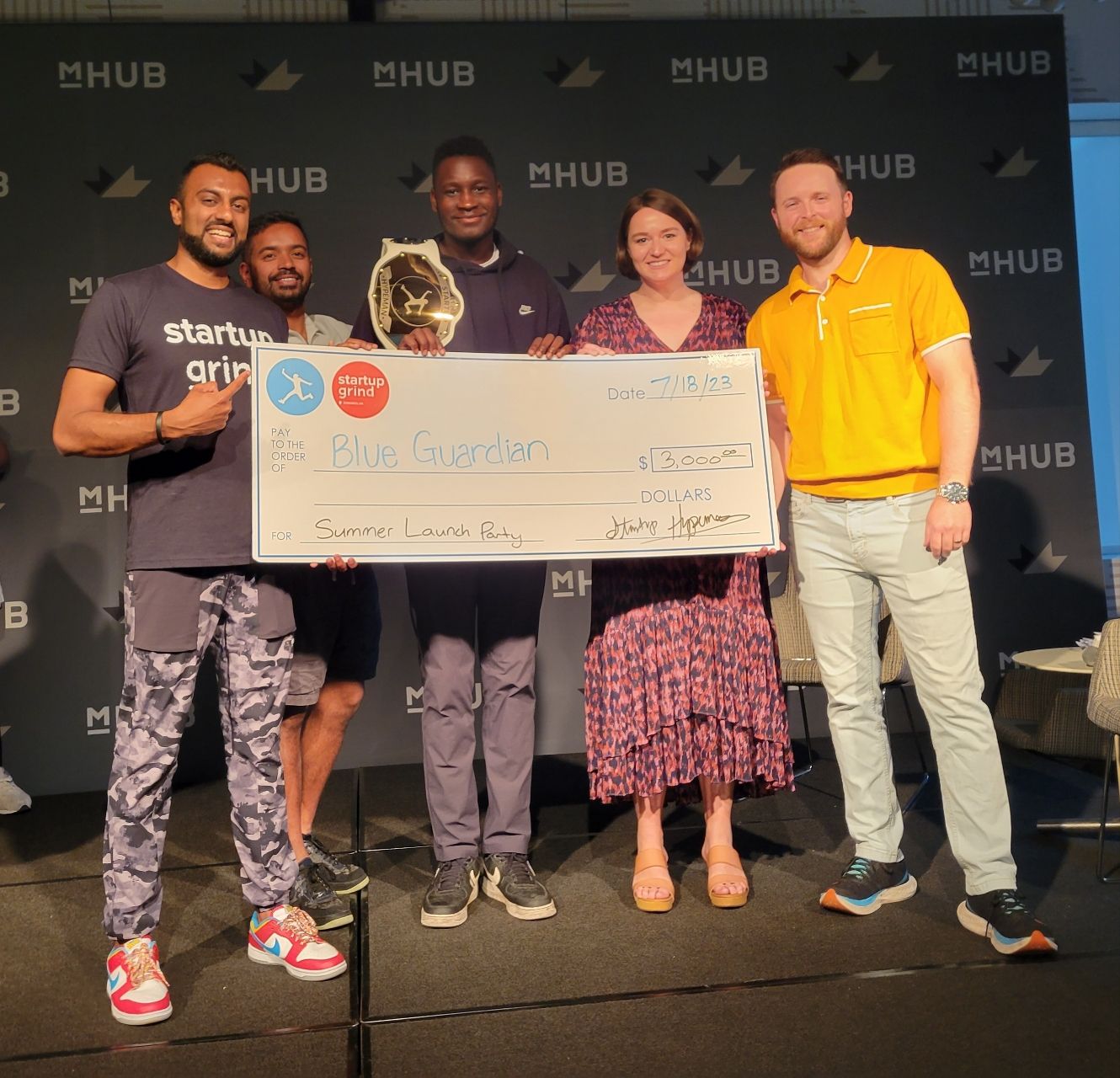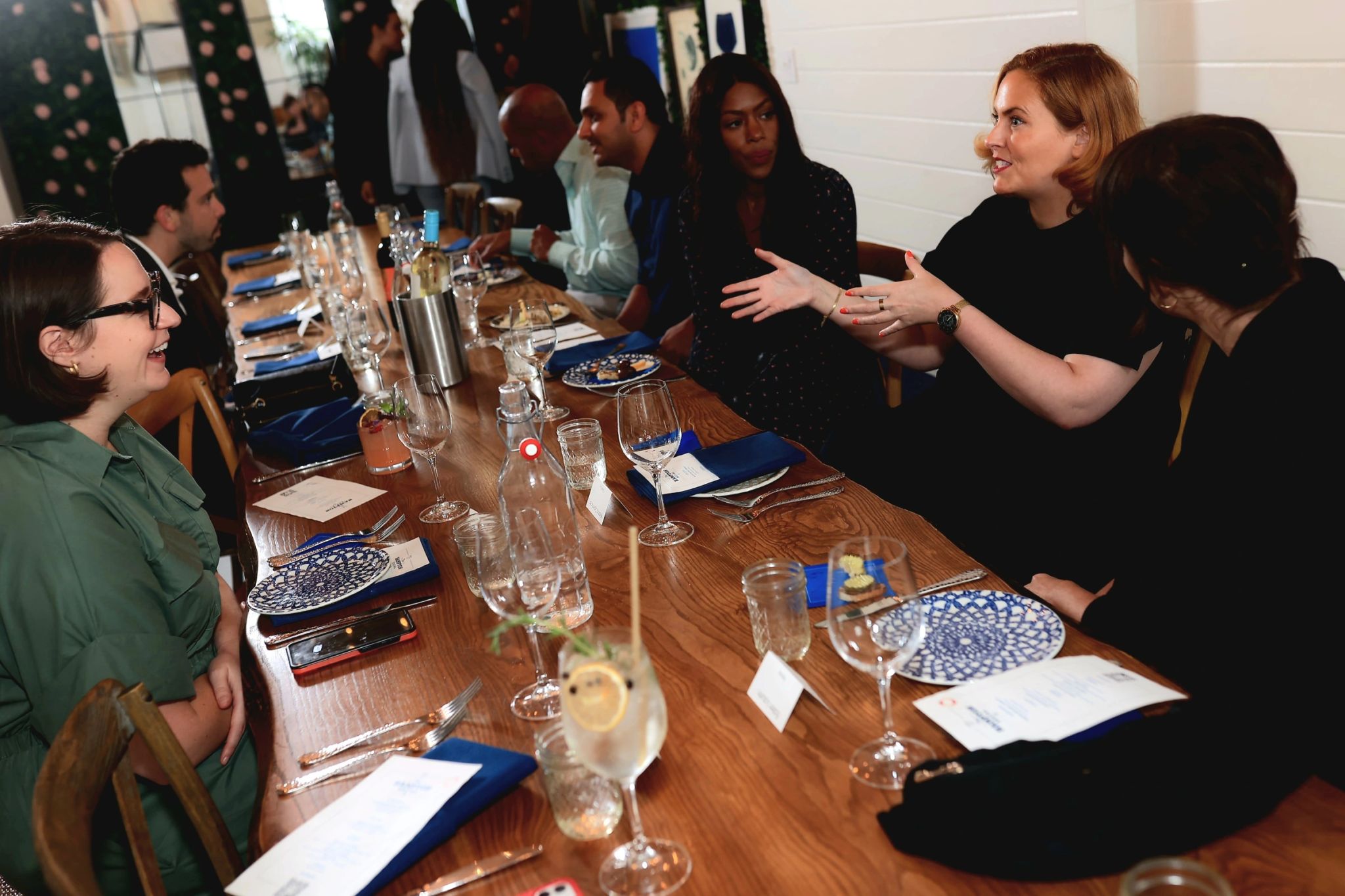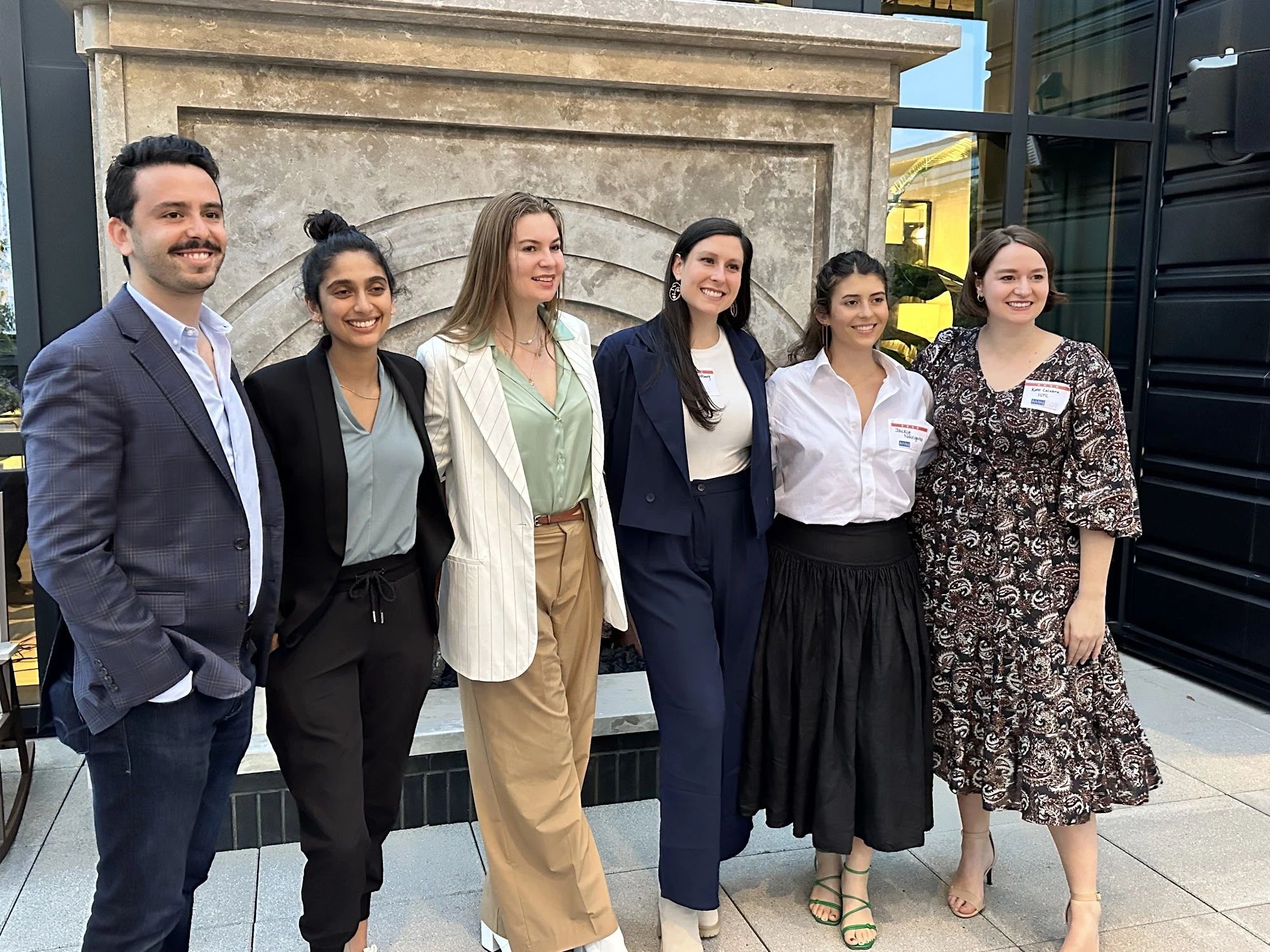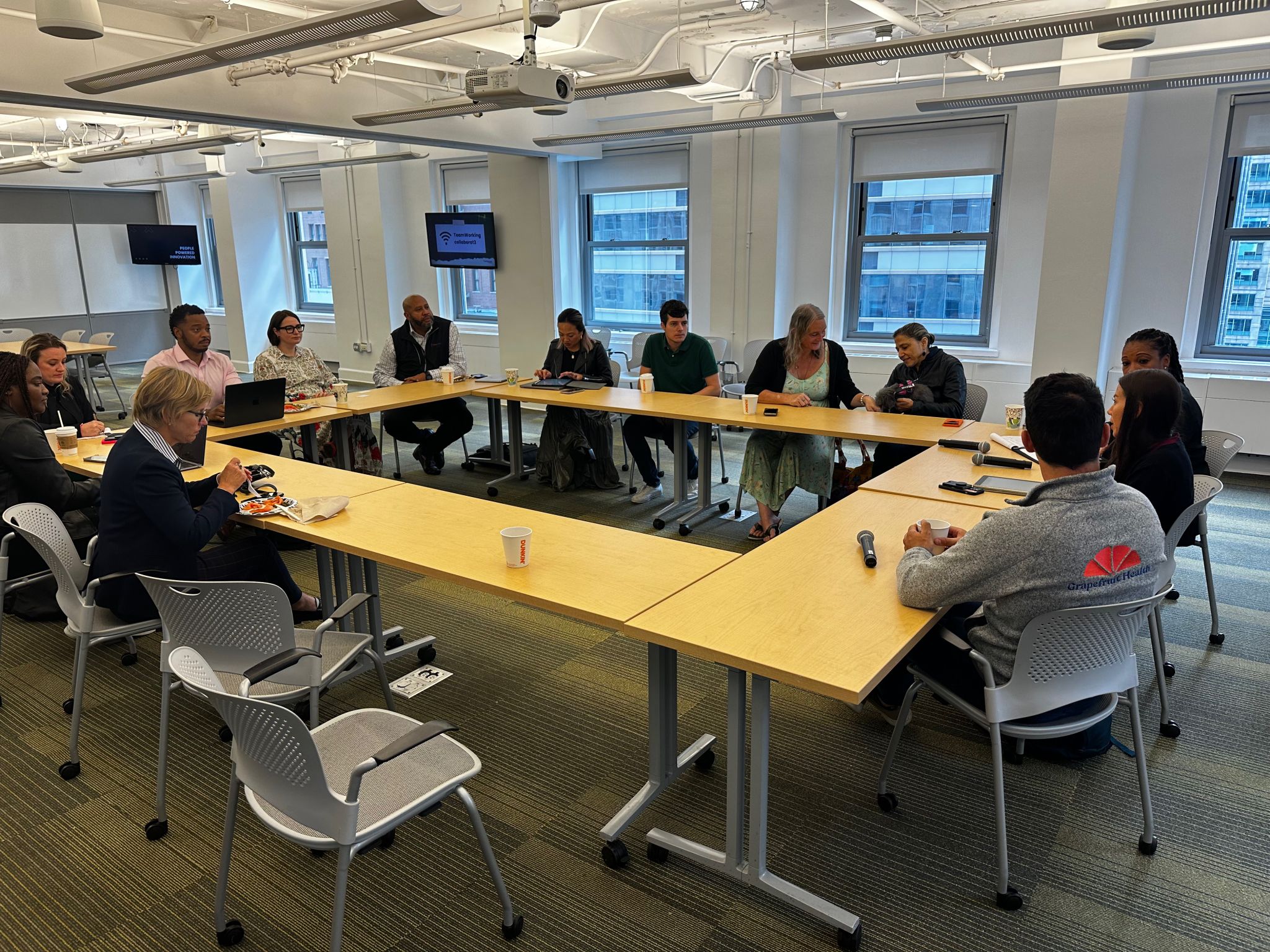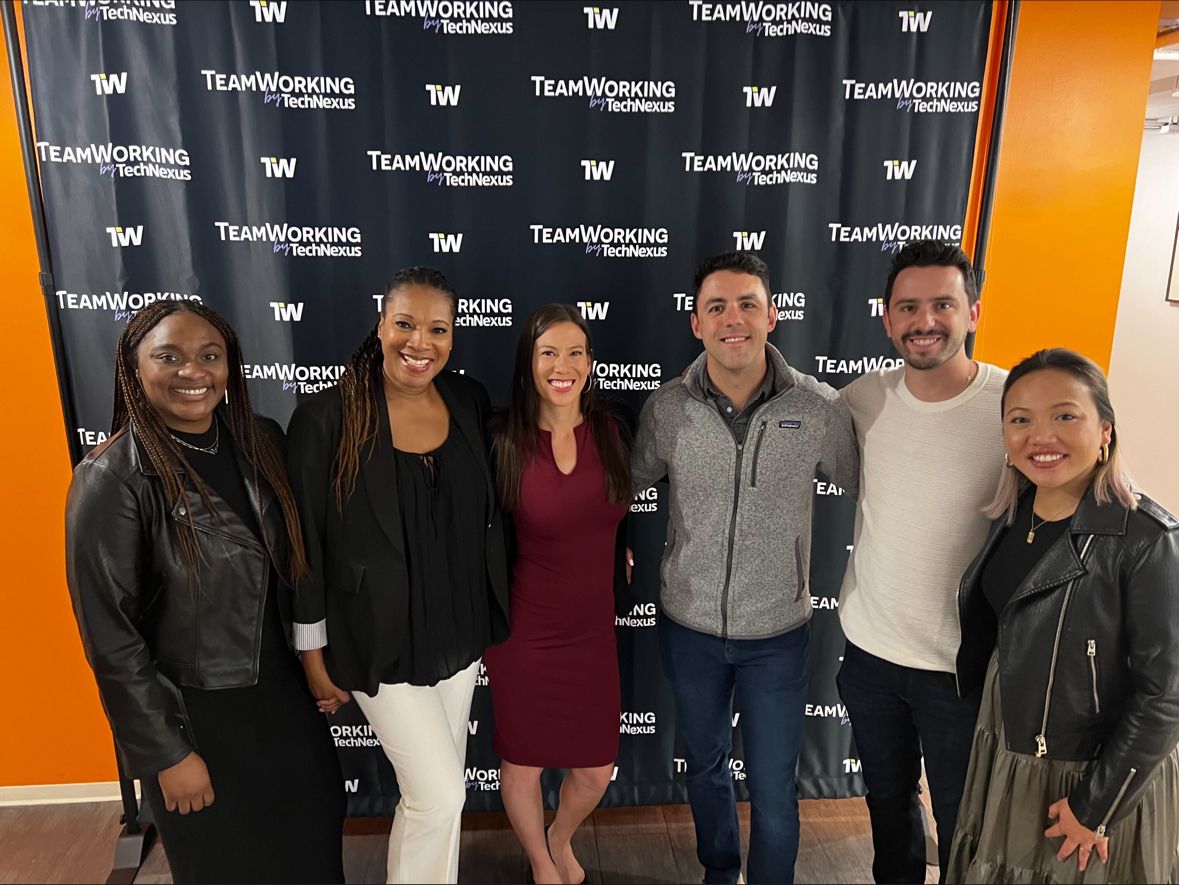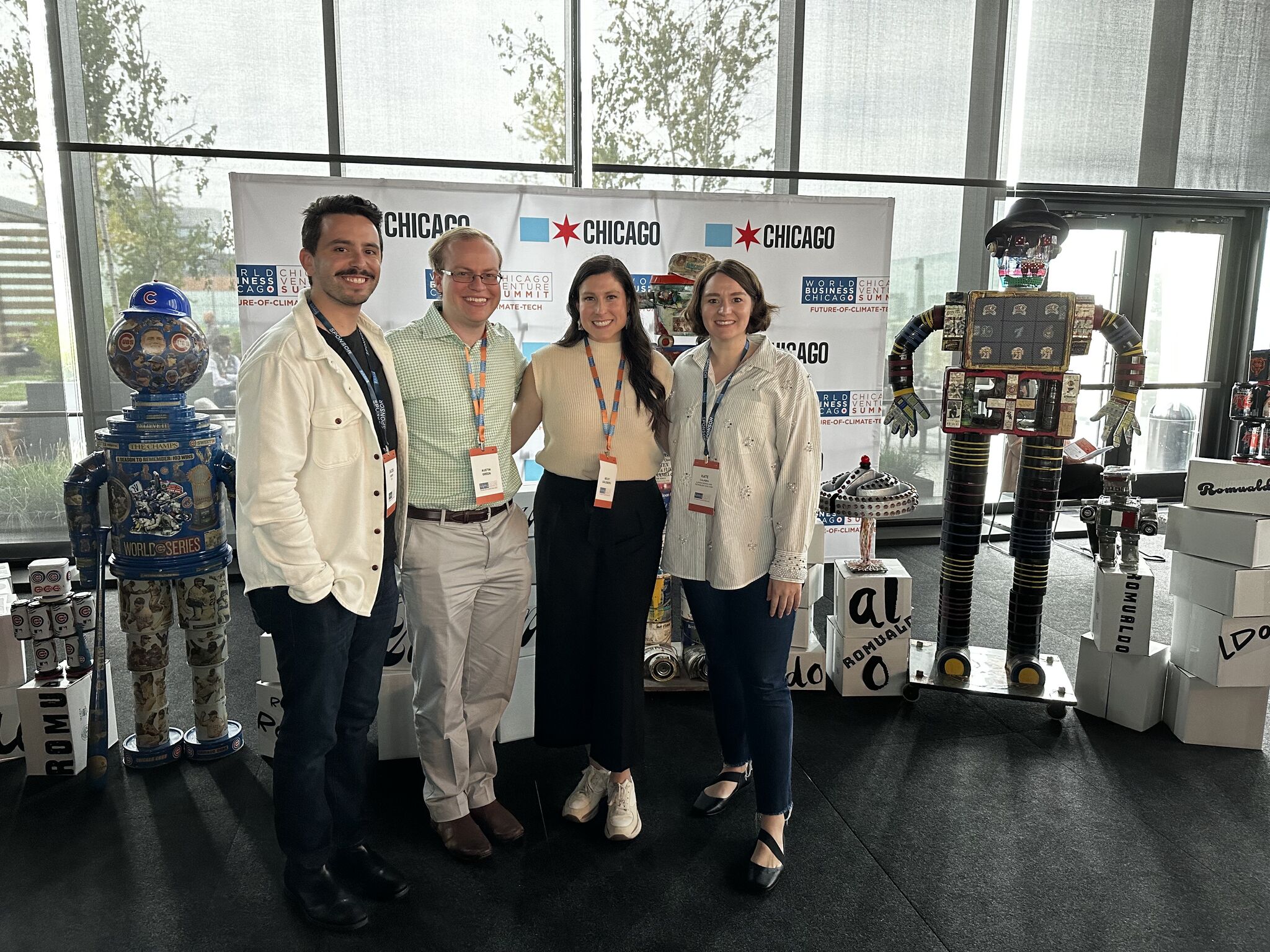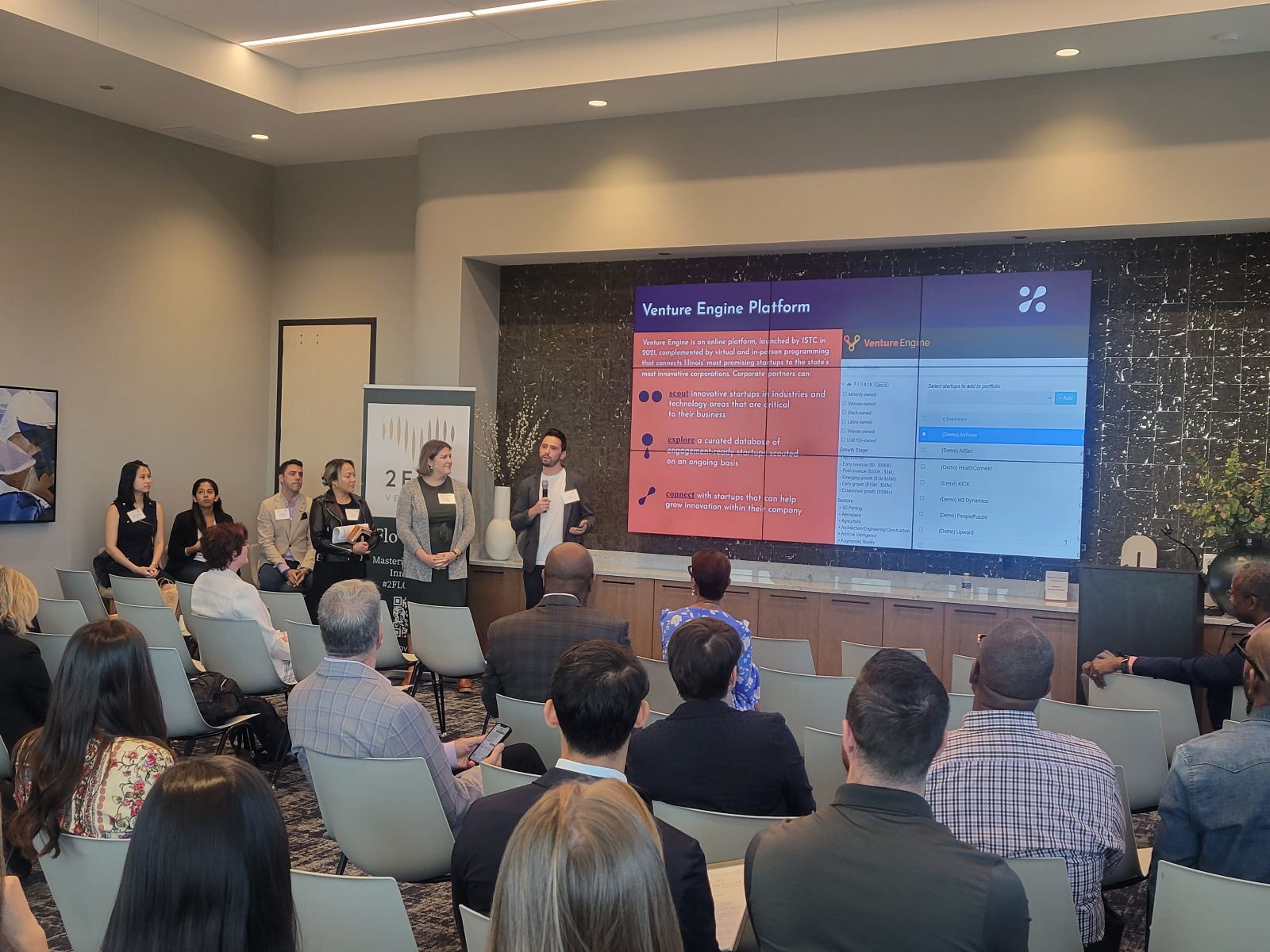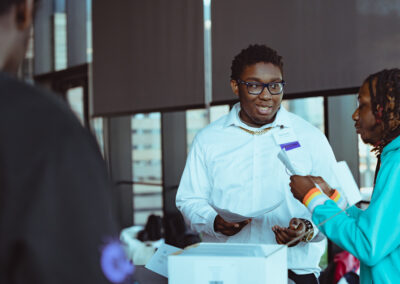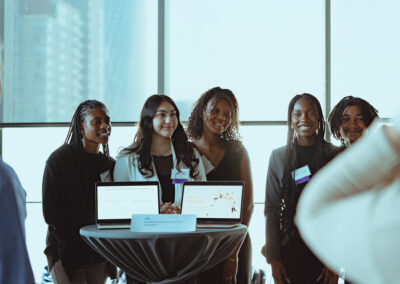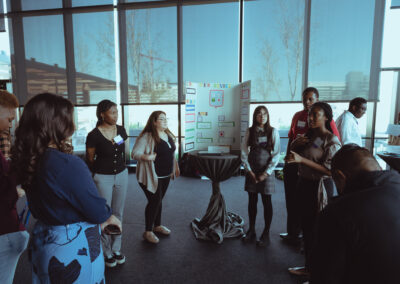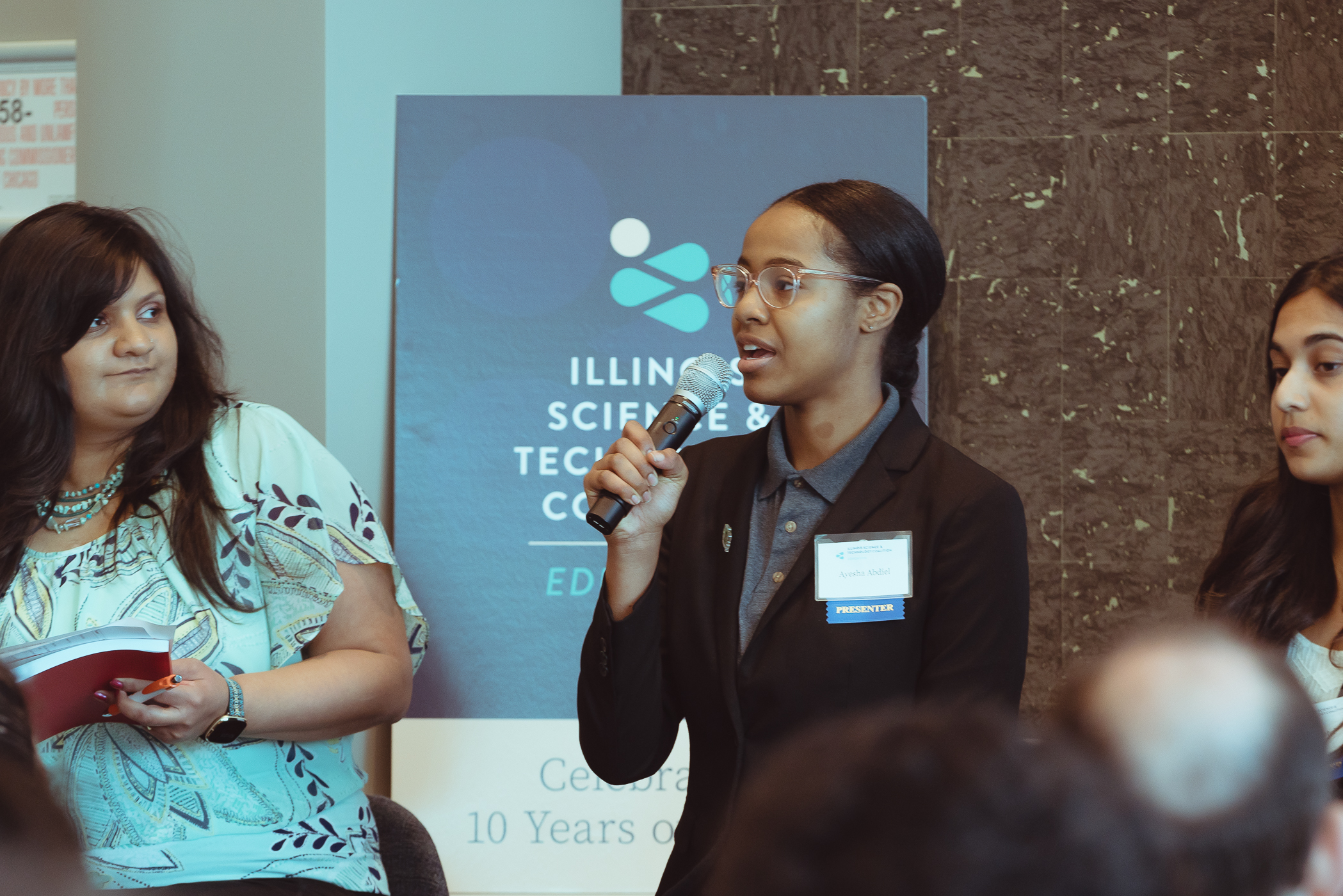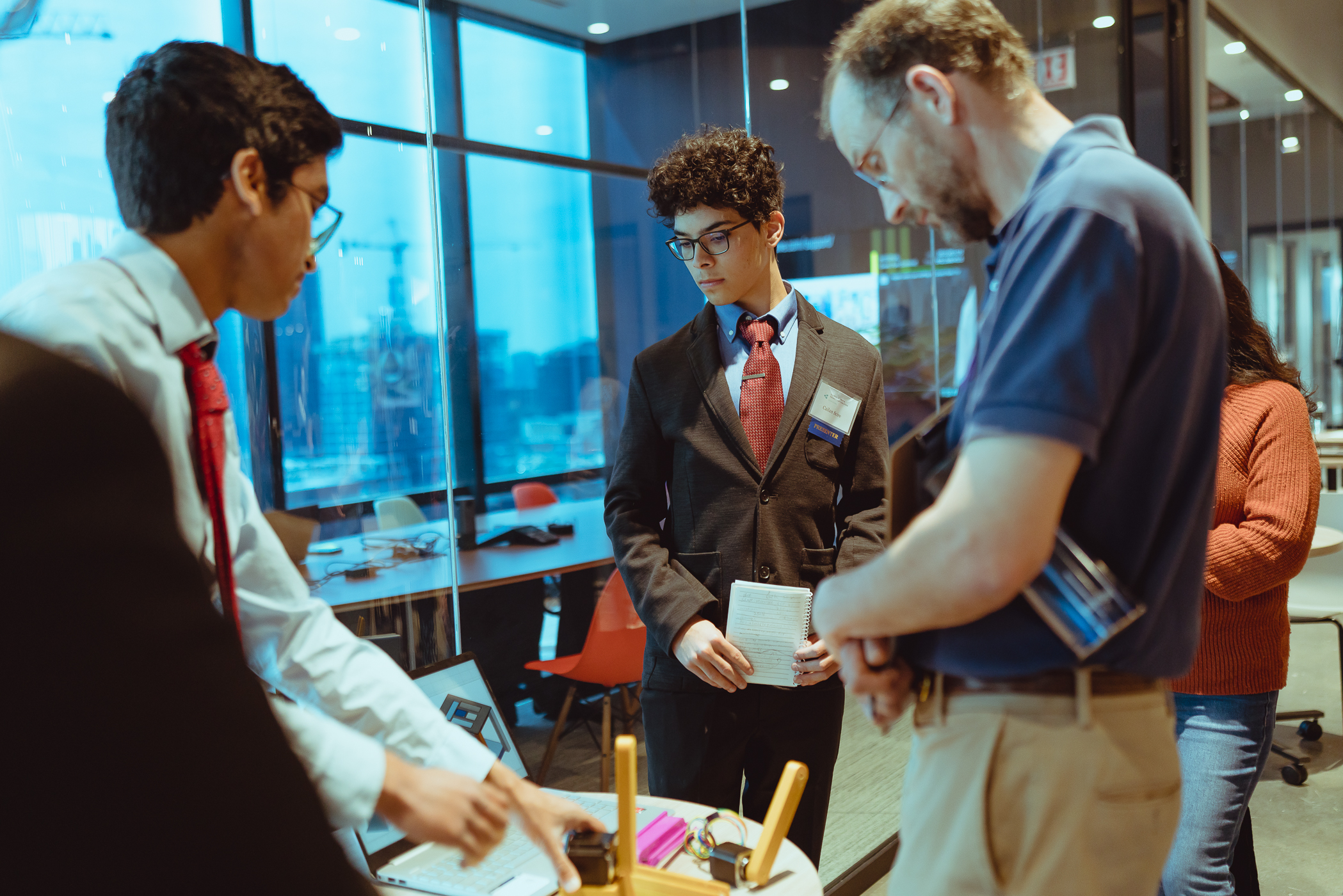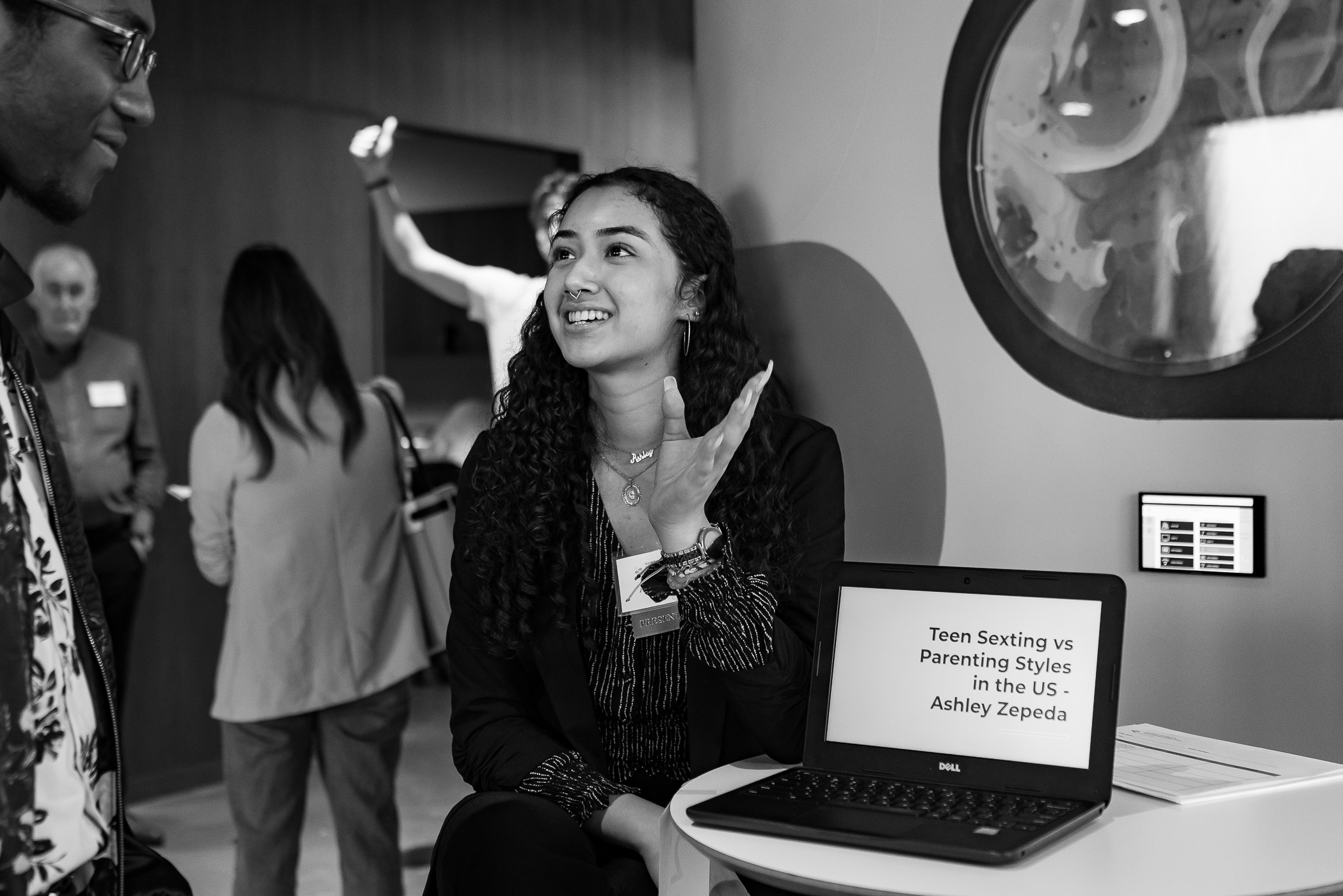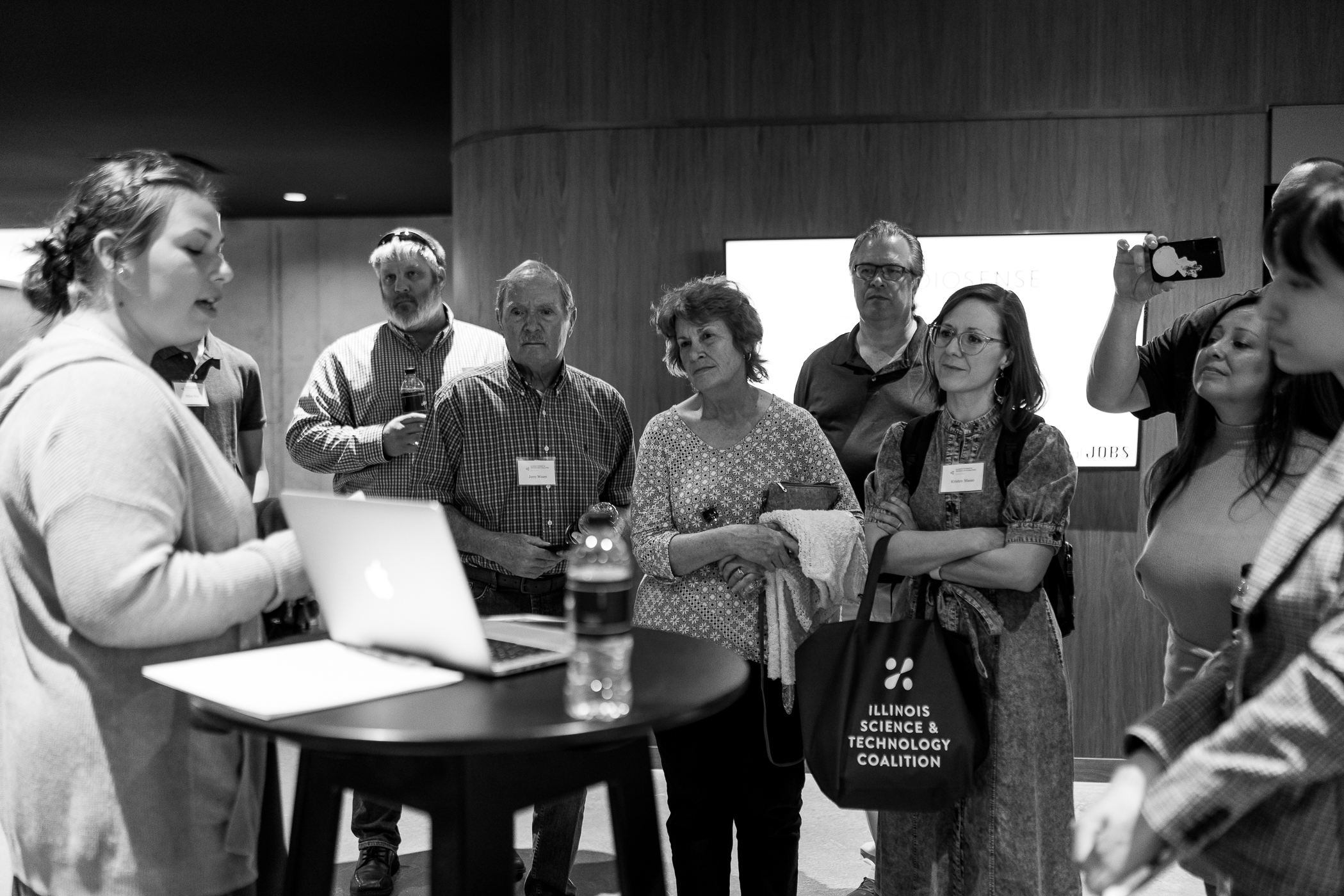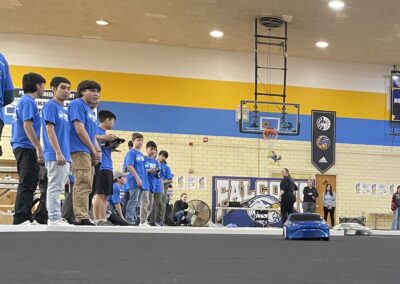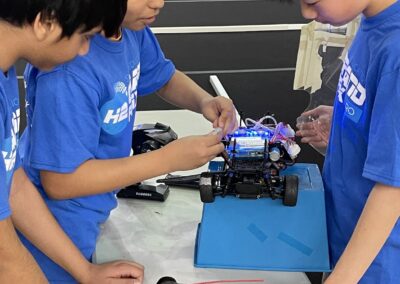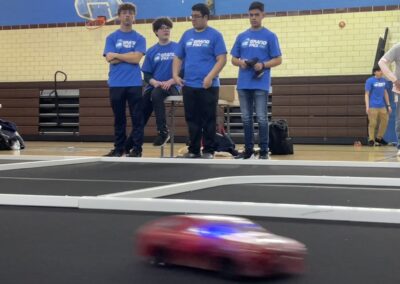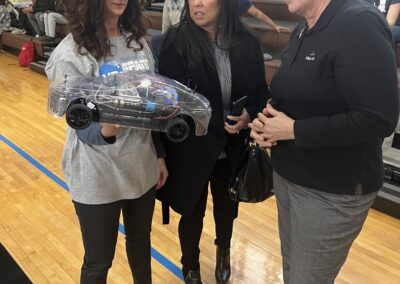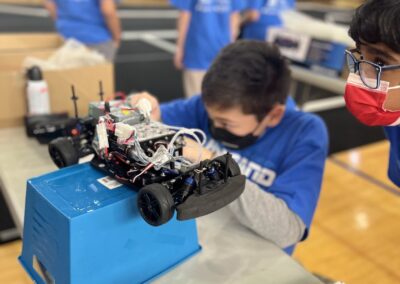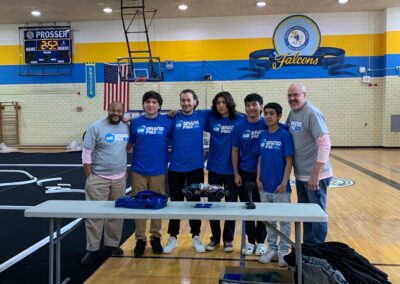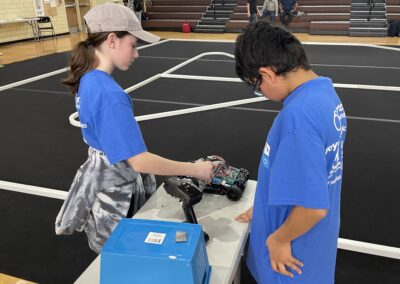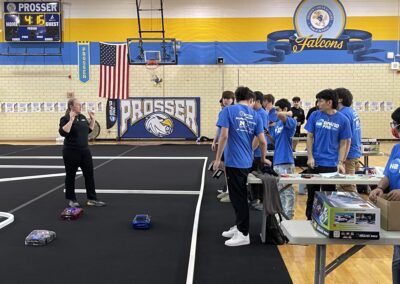
Greetings from ISTC Leadership
2023 was another unprecedented year as ISTC built upon the progress we made in the emerging post COVID 19 economy and strongly moved into post pandemic growth. Illinois still had some lingering challenges, but the collective power of government, corporate, and non-profit efforts not only rose to meet those challenges, but continued to deepen our understanding of what it meant to be human and our commitment to helping everyone thrive.
Paradigm shifts continued throughout corporate innovation, policy, investment, government and ecosystem partnerships and new innovative voices were emerging throughout the state. There was an urgency to make up for lost time and economic uncertainty and 2023 was a foundational year to build.
Even though the number of startups created in 2023, took a dip from the previous year, there were record numbers of women (40%) and immigrant founders (48%) creating companies in our state’s universities. There was also a record number of new investment funds in Illinois, led by women and BIPOC GPs. Accordingly, our efforts working for an entrepreneurship VISA continue, as well as a year’s worth of programming focused on minority founders and leading sectors.
As we look at our own Venture Engine program, fifty-percent of our showcase pitches were made by marginalized founders and 50% of our startup-corporate connections were made for marginalized founders.
ISTC did not release an R&D report in 2023, but looks forward to a release in 2024 aligned with a new Illinois Researchers to Know, celebrating researchers across our universities, bringing innovation to impact.
Through a year of continued caution, we were successful in connecting, aligning and supporting public and private members of the state’s STEM community. ISTC supported dozens of companies in their Small Business Innovation Research (SBIR) or Small Business Technology Transfer (STTR) program journeys as state matching continued. ISTC was also elated to watch the Illinois Innovation Voucher legislation become law and funded in the state’s 2023 budget. ISTC worked for several years on this legislation and we are thankful to all who supported it, especially the Illinois Department of Commerce and Economic Opportunity (DCEO) for remaining steadfast in that support. DCEO released a NOFO for the program’s administration in November and by December, announced that ISTC would be the administrative lead for the $3M program. The team jumped into action in preparing for the launch of the program in early 2024.
2023 was a very busy year for us in grant leadership and support. From NSF Regional Innovation Engine grants, to others focused on quantum, clean energy and innovation investments. ISTC looks forward to continuing these efforts in 2024
ISTC’s Educational Institute celebrated its 11th year of STEM programming throughout the state of Illinois. This last year had been another challenging year for educators and students and our education team rose to the challenge once again as we pursued lasting connections between companies and classrooms to build Illinois’ STEM talent pipeline. In 2023, we reached students across more than 49 Illinois high schools in 11 Counties and engaged with mentors in new and creative ways. Our global mentor network used our Mentor Matching Engine e-mentoring platform (MME) to meet the virtual and equity challenges on a deeper level than ever before. We are determined to bring MME to even more students and organizations across our state, as well as key partners across the country.
In 2021 we implemented our ARC equity framework across the organization, impacting vendor selection, team growth, our board, and every new and legacy program we created and supported. Through our equity framework we reimagined what our membership table could look like and those who were seated there. Our outreach in 2023 continued to include more non-profits, smaller innovative colleges and universities, SBDCs and emerging startups throughout Illinois. We are also proud to say that we met or surpassed our equity goals in 2023 (see Equity section) with the exception of our team growth, which we will continue to make a top priority in 2024.
We’d like to recognize and thank our committed group of members, partners, and funders, who represent the heartbeat of the state’s innovation community and work to enrich the state’s economy. They not only shared our passion and mission; they were unwavering in their support.
Finally, we thank our tremendous board of directors for their dedicated leadership and ongoing guidance through another unprecedented year. We’d also like to thank them for their support in our ever evolving strategic vision as we navigate our ever changing world and our ever evolving technology based economic development.
We invite you to review our annual report to learn more about our 2023 accomplishments. Our work has always been rooted in bringing “Idea to impact.” Through I-D-E-A, Innovation, Data, Education, and Advocacy, we continue to make a meaningful impact on the STEM community as we pursue our strategic vision. We look forward to advancing our supportive journey with all of you.
Illinois Science & Technology Coalition
Bill Payne, Board Chair
Executive Director, Science and Technology, Polsky Center for Entrepreneurship and Innovation, University of Chicago
2023 Team
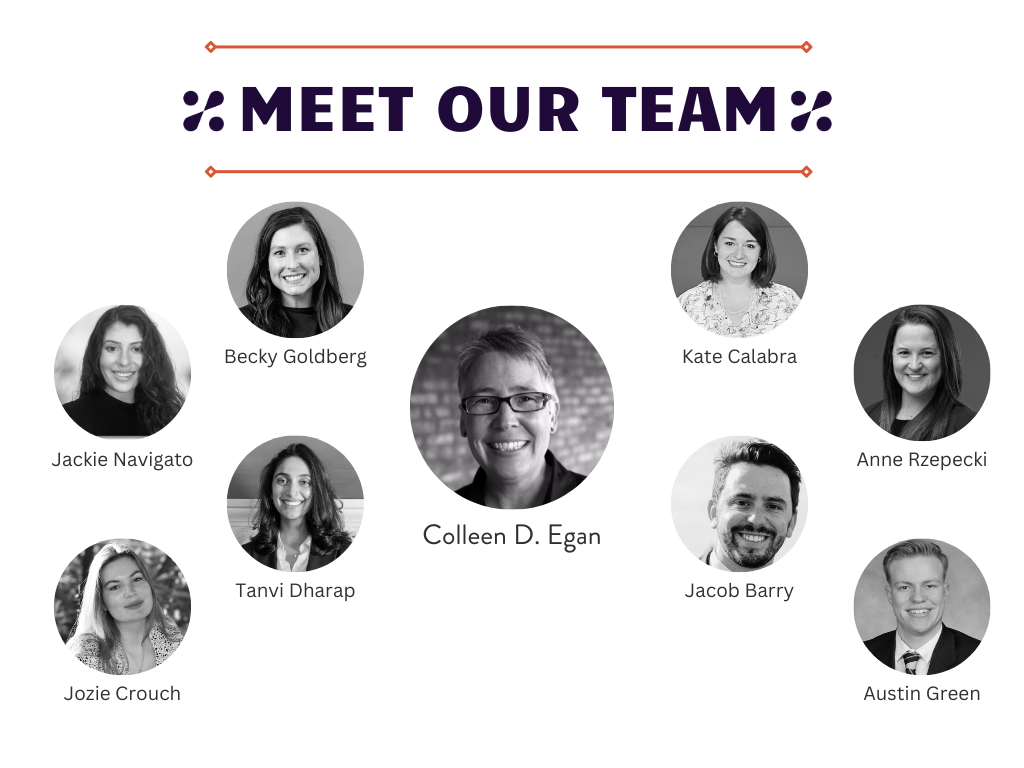
Board Chair in 2023
Laura Appenzeller, Executive Director,
University of Illinois Research Park & EnterpriseWorks Technology Business Incubator
New Board Chair 2024
Bill Payne, Executive Director,
Science and Technology, Polsky Center for Entrepreneurship and Innovation, University of Chicago
New Board Members in 2023
Colleen Wright, Constellation Energy
Dr. Yvonne Harris, Northeastern Illinois University
Thanks To All Of Our Supporters
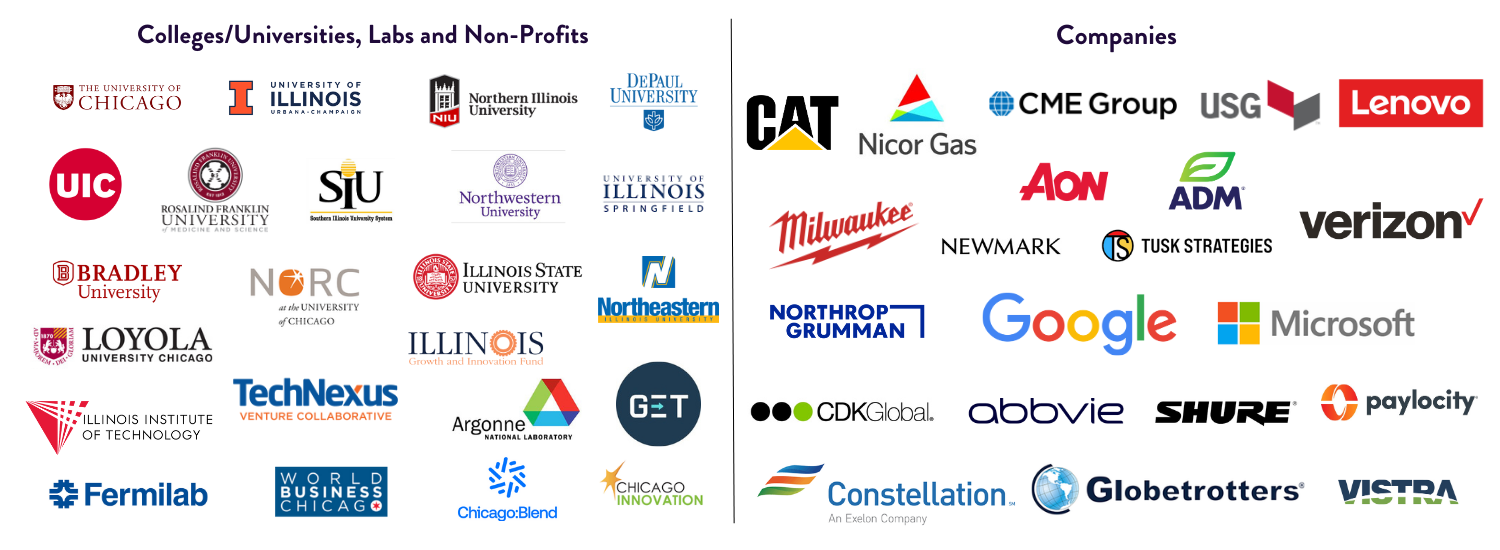

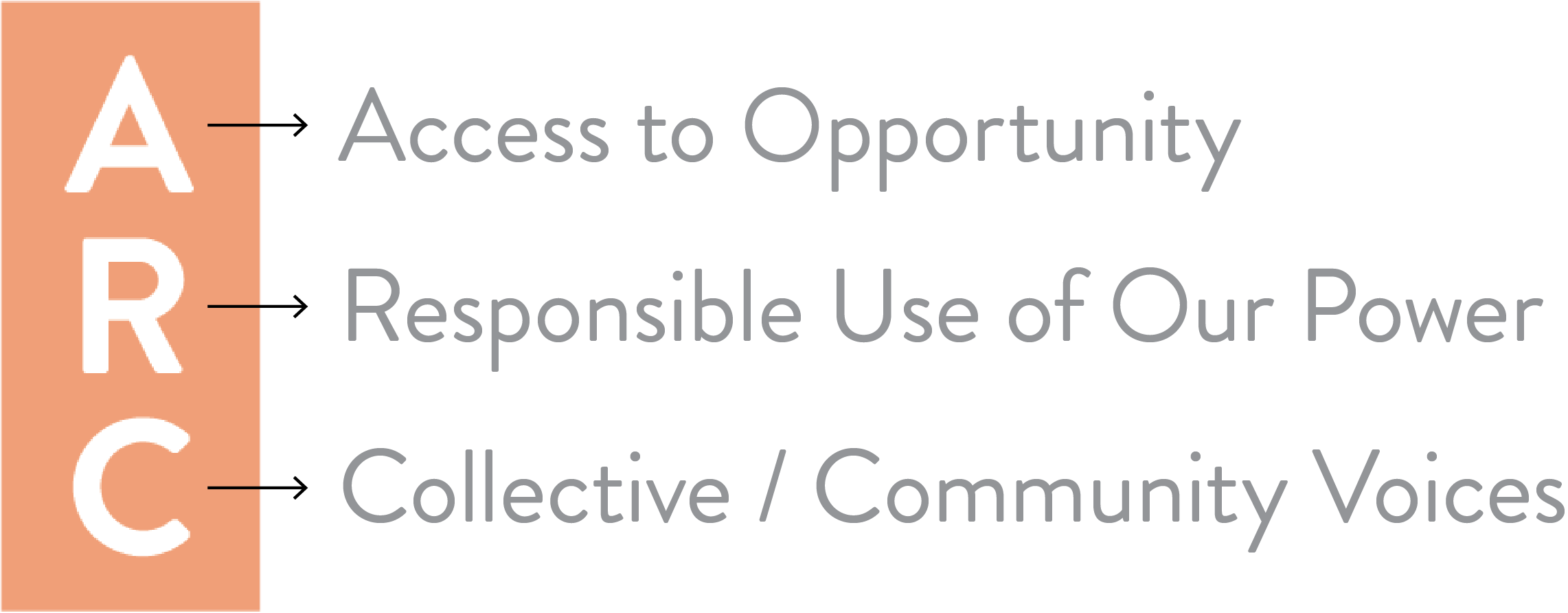
We continued in 2023 to choose vendors meeting our equity guidelines and brought in more women and minority founded companies. Our accounting, auditing, design, DEI, grant, educational, external consultants and vendors are over 70% women or minority led companies and we will continue to maintain levels over 50%.
We set a 50% diversification goal for our board in 2023 and our board of 18 ended the year accordingly:
66% of our board members are women and/or minority members. 48% of all board members are women, while 52% are men. The ethnicity of board members is White (56%), followed by African American/Black (22%), Hispanic or Latino (11%), Asian (11%) and Unknown (1%).
Having made such great progress in 2023, our goal for 2024 is to continue to have a diverse and impactful board of directors representing unique voices from across our ecosystem.
Our team continues to grow and currently identifies as 67% women, 23% men, and 10% non-binary. Our team also includes 33% LGBTQ representation. Our goal through 2023 was to increase our black and latinx team by 20%, which we did not accomplish with two new roles. Our goal for 2024 is to continue growing our team focused on aligning with the diversity of our ecosystem.
Our DEI work continues in everything we do. In 2023, we began our partnership with Marisol Rodriguez and her company Awaken to Life Coaching. Marisol is a certified Life and Career Empowerment Coach who specializes in human centered design, DEI strategy, and implementing more empathetic approaches to both the personal and professional sides of life. She began her career in crisis intervention and provided trainings to hospital staff and first responders about how to incorporate compassion and kindness while fulfilling their duties. Currently she is a Sr Innovation Lab Coach & Facilitator at CME Group, where she helps teams build complex collaboration skills and pursue personal goals.
In November, she led the second session of the 2023-24 programming year mentor training for ISTC Education’s Mentor Matching Engine and STEM Challenge. During this session, she helped mentors shift into a DEIA/trauma-informed perspective, and equip them with mentorship engagement tools that promote trust-building and relationship development.
Learn more here: www.istcoalition.org/arc-framework

2023 Highlights
In 2023, we successfully organized four impactful showcases and dinners, each focusing on key industries such as Finance, Food Tech, Life Science and Bio-Tech, and Cleantech. Collaborating with WBC for the financial showcase and Edelman and WBC for the food tech event, we also partnered with 2flo Ventures for our insightful Med Tech showcase, emphasizing the integration of health equity into business models. For the Clean Tech sector, our collaboration with Startup Chicago and WBC culminated in a showcase and the hosting of their VIP reception during the Venture Summit: Clean Tech.
Since the launch of Venture Engine in 2021, our community has grown to over 200 startups, of which 44% of startup founders on Venture Engine identified as a minority demographic; 26% women, 14% black, 7% Latino, & 6% LGBTQIA+.
The connections made between startups and corporations or VC’s throughout the programming year and continue to drive ongoing conversations on diverse forms of partnership and investment.
Venture Engine Highlights
Venture Engine has grown to a community of over 200 emerging startups (43 added in 2023) and continues to evolve its programming in order to establish a deeper foundation of equity by increasing the number of underrepresented founders on our platform and positioning those founders for success through programming opportunities.
We also focused on the growth of our collective ecosystem. We worked to ensure that the number of startups on the platform and the diversity of sectors they represented were a reflection of emerging industry trends and our corporate partners.
The Venture Engine platform has representation from over 75 different industry sectors. The top 10 sectors that make up our startup community include:
- Artificial Intelligence
- Health and Wellness
- Data Analytics
- Internet of Things (IoT)
- Manufacturing/Machine Learning
- FinTech
- Food and Beverage
- BioTech
- Enterprise systems and applications
- Agriculture
Executive Founder Series
Our Executive Founder’s Program facilitated meaningful connections by bringing founders together at three distinct dinners: Ecosystem Partners, Corporate Partners, and Venture Capital firms. This unique opportunity allowed founders to engage in valuable conversations, paving the way for new opportunities and forging important connections. Complementing these events, we provided founders with tickets to prestigious tech ecosystem events in Chicago, enabling them to attend exclusive gatherings that would typically be out of reach. To further enrich their knowledge, we organized lunch and learn sessions and workshops covering diverse topics, from a women’s financial series to HR discussions and IP assistance.
To learn more about our inaugural Executive Founder Series, click HERE.
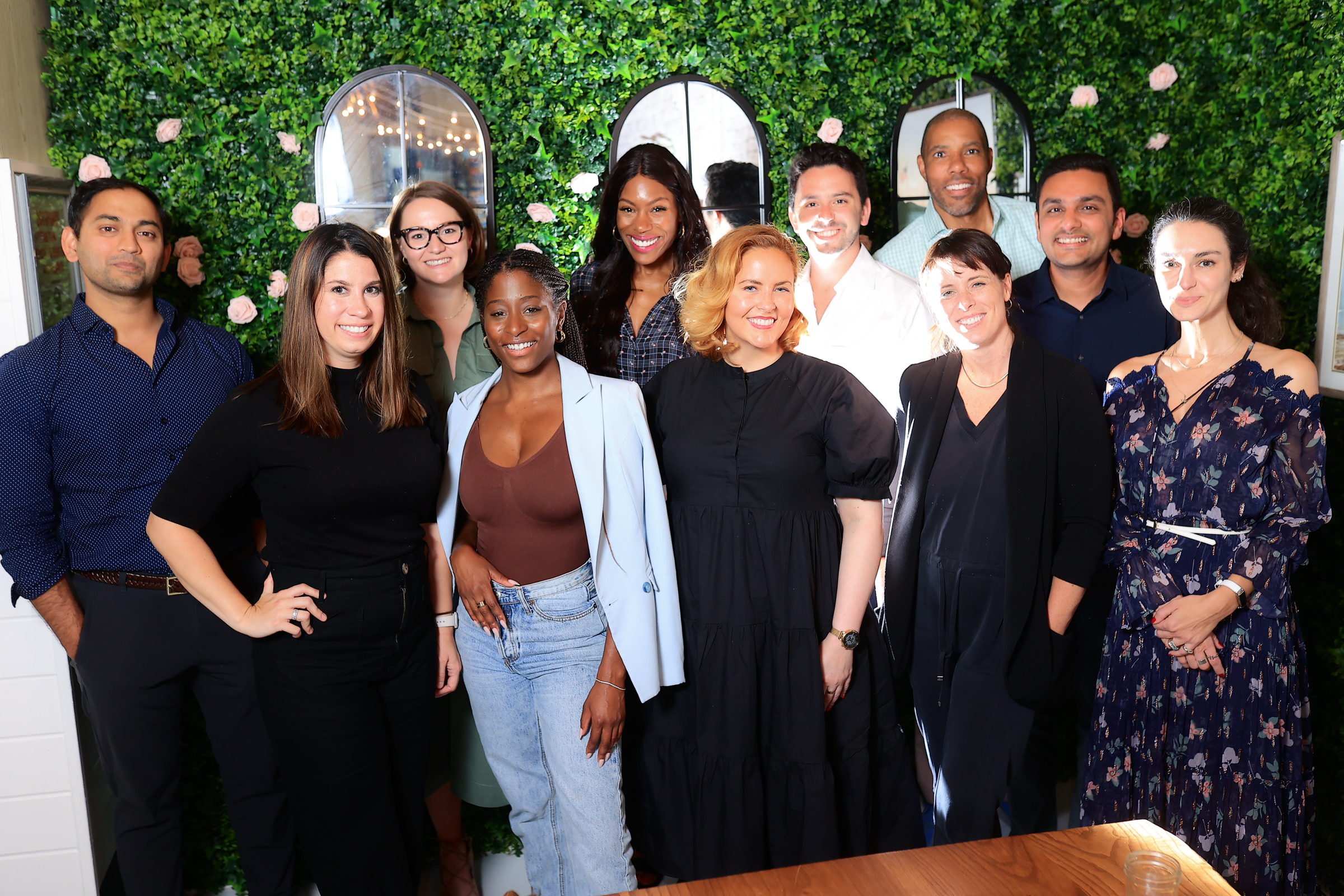
Events and Community Engagement
Over the course of Venture Engine’s pilot year, there were several well-attended workshops and pitch showcase events designed to amplify the innovation of our startup founders and ecosystem leaders. In our first year, Venture Engine partnered with or hosted over 50 different actively engaged corporations and VCs.
4 pitch showcases
- Life Science/ Biotech
- Health Equity
- Cleantech
- Food and Beverage Innovation
4 workshops
- Gender Equity in Tech
- New Industry Disruptors
- Culture Forward (Future of Work)
- Untapped Toolkit Series (Diverse Founders Breakfast)
- Women’s Financial Series with Achiiv
10 Lunch and Learns
Sessions included:
- The Role of the Team in an Innovative Company
- How to Avoid Mis-hiring
- Onboarding New Employees
- AI vs. Leadership and Reskilling
- Funding Trends
- Legal Lessons on Intellectual Property
- How to not suck at pitching your startup
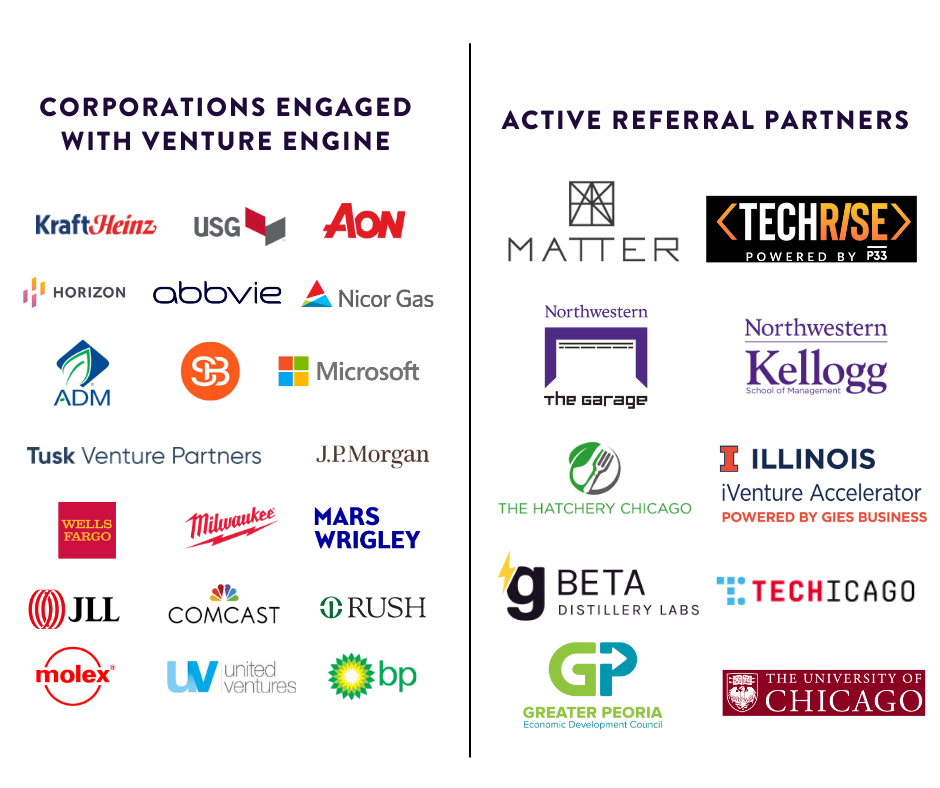
Looking Ahead
Moving forward in 2024, we are thrilled to share some exciting updates! Our Executive Founders series is set to continue, and in the first quarter, we’ll conclude with two noteworthy events. The first is an exclusive dinner featuring Executive-level leaders, followed by an end-of-session event in March. This will mark the completion of the first cohort’s programming and serve as the launch for our second cohort!
Additionally, our Industry Series will persist with a focus on Manufacturing, Blue Tech, BioTech, and Cybersecurity and Enterprise Systems. We eagerly anticipate the inclusion of more startups and partners in our expanding ecosystem.

Illinois Innovation Index: STEM Talent Pipeline
Illinois offers a unique and diverse landscape for Science, Technology, Engineering, and Mathematics (STEM). From degree programs to the post-graduation job market, Illinois is consistently a national leader in STEM graduation rates and employment. This year’s STEM Talent Report explores trends within STEM education and the STEM workforce from 2013-2022. The Illinois Science and Technology Coalition (ISTC) produces this report annually as part of the Illinois Innovation Index, a tripartite report series that provides timely analysis and insight on technology-based economic activity in Illinois. The intention of the STEM Talent Report is to identify and highlight Illinois’ supply of STEM talent, which is represented by degree conferrals, as well as demand in the workforce, which is represented by trends in the job market.
KEY FINDINGS:
STEM TALENT SUPPLY
- In 2022, the number of STEM degrees awarded in Illinois reached a new record high at 27,434 in 2022 and the state now ranks 7th in the nation for STEM degree completion. For comparison, New York ranked 2nd in STEM degree conferrals in 2022 at 54,057, Texas ranked 3rd at 48,878, and Iowa ranked 27th at 7,642 STEM degrees.
- Illinois ranks 21st among all states in the percentage of total degrees that are in STEM at 22.59%. For comparison, Texas is ranked 19th (22.75%), New York is 18th (23.14%), Iowa is 1st (45.30%).
- Over the last 5 years, three STEM subject areas in Illinois have seen increases in completions; Business and Management STEM degrees (35.01% 5-Year cumulative annual growth rate), Natural Resources and Conservation (7.82%), and Interdisciplinary Sciences (6.85%).
- Illinois was third in the nation in 2022 for the number of pre-baccalaureate STEM completions in the state (7,737 degrees or certificates).
- Over the last 5 years, there has been a significantly larger number of pre-baccalaureate STEM completions in the following subject areas; Computer and Information Sciences (29.1%), and Engineering-Related Technologies (17.89%).
- Four-year degree completions in Illinois are declining overall, but STEM degree completions are increasing. The total number of all degree completions in Illinois fell from 2021 to 2022 by just over 2,000 degrees.
STEM TALENT DEMAND
- Illinois STEM Jobs1 reached near record high, with 350,380 Illinoisans employed in STEM fields, according to ISTC’s coding. This is nearly 24,000 more STEM Employees than reported in the 2022 STEM Talent Report. The highest number of STEM jobs in Illinois was in 2019 (352,280).
- Illinois ranks 25th in the percentage of all jobs in the state that are in STEM fields (6.01%), just under the national rate of 6.61%. Washington D.C. (12.97%), and Washington state (10.25%) rank 1st and 2nd on this metric.
- The fastest growing STEM Career Fields in Illinois are Mathematics and Statistics (6,090 jobs added in five years; a 13.83% growth rate), social science roles (3,270 jobs added in five years; a 8.20% growth rate), and management roles in STEM (4,980 jobs added in five years; a 3.98% growth rate).
- By Career Fields, Illinois2 experienced a significant one-year growth in computer science jobs (8,870 jobs for a 5.5% increase) and mathematics jobs (3,050 added for a 25.4% increase).
- The fastest growing STEM occupations in Illinois include Aerospace Engineering and Operations Technicians (85.5%), Animal Scientists (66.9%), Statisticians (45.9%), General Drafters (37.6%), General Life Scientists (32.4%), General Psychologists (21.7%), and Physicists (18.9%).
DIVERSITY, ACCESS, AND INCLUSION
- Women represent 50.49% of Illinois’ population. In Illinois, women received 10,648 STEM degrees in 2021 (39.03% of all Illinois STEM Degree Earners in 2021). In 2022, women increased their representation. 10,912 women received STEM degrees in 2022, reflecting 39.78% of the total 27,434 Illinois STEM Degrees awarded.
- There were 39,276 Black Illinoisans employed in STEM roles in May of 2022, according to ISTC’s coding of STEM positions and the American Community Survey’s available data on employment statistics by demographics. This is a record-high number of Black STEM employees in the state and also contributes to Black employees making up a record-high percentage of the STEM workforce in Illinois for the 2022 data year.
- In 2022, Black Illinoisians made up 8.05% of STEM workers in Illinois. This percentage surpasses the previous high in 2011 of 7.1% and is an improvement since 2021, when Black Illinoisians made up 5.5% of STEM workers in Illinois.
- There was a record-high number of Latinx Illinoisans (60,440) who held STEM related positions in 2022. This total represents 9.87% of the total STEM workforce in Illinois for 2022. In 2021, Latinx Illinoisans made up 9.46% of the Illinois STEM workforce.
TALENT MIGRATION
- Illinois retains 60.57% of Data and Computer Science graduates.
Illinois graduates in computer science or data science are more than 4x as likely to locate in Chicago than any other major city to start their careers.
Illinoisans are 6x as likely to locate in Chicago than any other major city if they major in biomedical engineering or biotechnology
Illinois Innovation Index: University Entrepreneurship
2023 marked ISTC’s 9th publication of this truly distinct Index publication focused on the generation of new small businesses in the state through university assistance and affiliation. The collective work of technology transfer offices (TTOs) across the state creates jobs, provides a foundation for design thinkers with big ideas, and accelerates growth. Our survey covers entrepreneurial endeavors pursued by faculty, staff, professors, and students across our 12 partnering institutions of higher education in Illinois.
KEY FINDINGS:
- 694 new startups were formed on campuses over the last 5 years; down from the 958 formed between 2013 and 2017
- Student startup creation fell in the last year, our 2023 Survey data suggest that there are about 44 less non-tech transfer startups in our Index than in the 2022 Survey
- Our collection found that university-supported startups created 2,093 new jobs over the last five academic years
- Of the 2093 jobs created by these small businesses over the last five years, 1,164 are currently active in the state
- Our estimates regarding the representation of founders indicates that the state’s innovation and small business ecosystem is becoming more diverse; around 40% of university-supported startups in Illinois are founded or co-founded by women, up from the 28% that was reported in our 2018 University Entrepreneurship Index
- We estimate that foreign-born founders are an even larger slice of the university-supported entrepreneur landscape than before; an estimated 48% of startups are founded or co-founded by foreign-born entrepreneurs in Illinois.
- On average, for every dollar a founder received in university awards or prizes, they could expect nearly $10 in additional VC funding
- Direct university funding recipients are more likely to remain active (67% to 61%) than the general population of founder
SBIR
- SBIR/STTR awards are given out annually to some of the top aspiring business leaders in Illinois. Between 2003 and 2022 $1.073B in federal funds have been injected into the Illinois innovation economy as a result of this program
- In 2022, Illinois Small businesses received 147 SBIR and STTR grants (13th in the nation
- Since 2013, the amount of SBIR/STTR funding being earmarked towards small businesses based in Illinois has increased each year outside of the time span between 2020 and 2021 marked by the onset of the Covid-19 Pandemic. In 2013 49.4M was granted to Illinois small businesses through the program, rising to 98.3M this past year in 2022
- Around 75% of award dollars go to the Chicago region whereas about 25% of award dollars are reserved for other communities in Illinois like Urbana-Champaign and Peoria. Since 2013 award dollars sent to Chicago as a result of the SBIR program have increased by about 7.8% annually, and awards to business located in townships outside Chicago has increased by about 8.5% annually
DEI
- University Entrepreneurship
- Women Owned University Supported Startups- ISTC estimates that around 40% of all university-supported startups over the last five academic years have had a woman founder or co-founder—the highest number of women-founded startups on record. There are 188 startups founded by women and 90 (48%) of those businesses received direct university funding. These women-owned startups also remain more active. Based on responses, 128 such startups that feature a woman as a founder remain active, 68% of the total, which is higher than the general population activity rate of 62%. Our 2018 University Entrepreneurship Report found 28% of startups featured a woman founder. The estimate rose to 33% in 2020, and now sits at 40%
- Foreign Born Founders- We also asked our participating universities about startup founders and their place of birth. We received responses from universities about 253 of the startups in our dataset. Of those 253 responses, we estimate that around 48% of university-supported startups in Illinois have a foreign born founder or co-founder. This is the highest rate of startup creation by foreign born founders in the history of ISTC’s collection.
- STEM Talent
- Women in STEM- Women represent 50.49% of the Illinois population, and every year the number of women STEM degree earners increases. In 2021, there were 10,648 who earned a degree in STEM, which represented 39% of all Illinois STEM degree earners. The total number increased slightly in 2022 to 10,912, reflecting 40% of the total 27,434 Illinois STEM degrees awarded. This is a record high number of women STEM degree earners for the state. Illinois is only slightly behind the national average of women STEM degree earners, which was 41.7% in 2022. However, when it comes to women employed in STEM, Illinois is beating the national average. In 2022, Illinois employed 182,422 women in STEM—another record high for the state. Overall, women compose 29.8% of all Illinois STEM employees, which is just higher than the national average of 29.55%.
- Black Illinoisans in STEM- When it comes to Black Illinoisans employed in STEM roles, Illinois made significant progress between 2021 and 2022. In May 2022, there were 39,276 Black Illinoisans employed in STEM—this is a record high counting number of Black STEM employees for the state. With this increase, in 2022, Black employees made up 8.05% of all STEM workers in Illinois. For context, in 2011, Black employees made up 7.1% of all STEM workers in Illinois, and in 2021, Black employees made up 5.5% of the STEM workforce—the lowest percentage reported in the last decade. STEM degree conferrals for Black students, however, did not experience the same upturn as we saw with Black STEM employees. Black students were less likely than their non-Black counterparts to receive STEM degrees in 2022 compared to 2021, going from 4.41% in 2021 to 4.28% in 2022. The total number of Black Illinoisans who earned STEM degrees in 2022 was 1,175. Illinois trails the national average of Black STEM degree recipients, which was 5.56% in 2022.
- Latinx Illinoisans in STEM- Latinx Illinoisans also recorded record high numbers in STEM-related positions in 2022, holding 60,440 jobs. This total represents 9.87% of the total STEM workforce in Illinois for 2022. However, Illinois still trails the national average of 10.84%. Degree conferrals for Latinx Illinoisans increased in 2022, but it still lagged the national Average. Latinx Illinoisans accounted for 10.33% of STEM degree recipients in 2022; while thispercent number is higher than each of the prior two years—7.4% in 2020 and 9.4% in 2021—this is still lower than the 2019 record high of 12.1%. Nationally, Latinx individuals made up 11.09% of STEM degree earners.
- SBIR & STTR
- Since 2018 major improvements have been made to both the Small Business Innovation Research and the Small Business Technology Transfer grant programs, evidenced by some major increases in the amount of funding going to minority owned small businesses
- There are three ways that the federal government captures America’s Seed Funding Awards to under resourced and underrepresented founders
- HUBzones are historically underutilized businesses and has both a geographic and demographic criteria- In 2018 just $374,000 in awards were sent to businesses in a HUBzone, just .5% of total award dollars given to small businesses owned by Illinois residents. In 2022, 9.3M was granted to businesses in HUBzones, a significant increase. $9.3M represented nearly 10% of all award dollars given out to Illinois Small Businesses in 2022. The Department of Defense sent nearly 8.6M to Illinois HUBzone owned companies in 2022.
- Socially and Economically Disadvantaged Owned companies- A socially and economically disadvantaged small business concern is one that is at least 51% owned and controlled by one or more socially and economically disadvantaged individuals, or an Indian tribe, including Alaska Native Corporations (ANCs), a Native Hawaiian Organization (NHO), or a Community Development Corporation (CDC). In 2018 3.6% of award dollars given to Illinois small business by the federal government through the SBIR program went to businesses that met these qualifications. This increased to just over 10% in 2022, with most of these award dollars coming from the Department of Health and Human Services. 6.7M out of the total 10.7M given to Socially and Economically Disadvantaged businesses were from DHHS
- Woman Owned Businesses are those small businesses with majority female ownership. In 2018 3.4M in federal dollars went to Illinois woman owned small businesses, compared to the 63.7M that went to male owned small businesses (5.1% to women). This slightly improved in 2022 with 6.3% of all award dollars going to women owned businesses in Illinois, more improvement is still needed though

General Reflection
A Letter from ISTC’s Director of Education, Becky Goldberg
Every year ISTC Education challenges students, educators, and mentors to innovate, ideate, and create something new. The push to evolve ideas, take feedback, and make an impact reflects our own organization’s commitment to building a stronger, more inclusive STEM talent pipeline through quality programming and educational access. From ISTC Education’s inception, the work has always revolved around high touch, high dosage, and high support experiences. It is with this exceptional attention to relationships that ISTC Education has been able to innovate, ideate, and create something new each and every year. We strive to take our own advice and model what it looks like to be on a continuous path of growth and walk in stride with our community.
After 10 years of impact, ISTC Education continues to take shape in response to participant needs. We have taken a critical look at programmatic elements and strategically built new structures for amplifying student voice and promoting trauma informed practices. Our programs have taken on new life as a key instrument for promoting access points for students to experience the real world. The Mentor Matching Engine became a critical tool during the pandemic and helped connect students during a disconnected time. The summer months were filled with student pitches and teacher exploration with the creation of The 6×3 Project ® and Teacher Externships; And our flagship program, The STEM Challenge, has seen a newly defined focus on human centered design, equity, and accessibility as it relates to real world problem solving.
Our future innovators are eager and excited to take on the challenges of tomorrow with the experiences and opportunities presented today. ISTC Education continues to embed ourselves in meaningful partnerships throughout the state and we look forward to the educational impact yet to come.
Read more in ISTC Education’s 10 Year Impact Report
Our corporate partners for 2023 include:
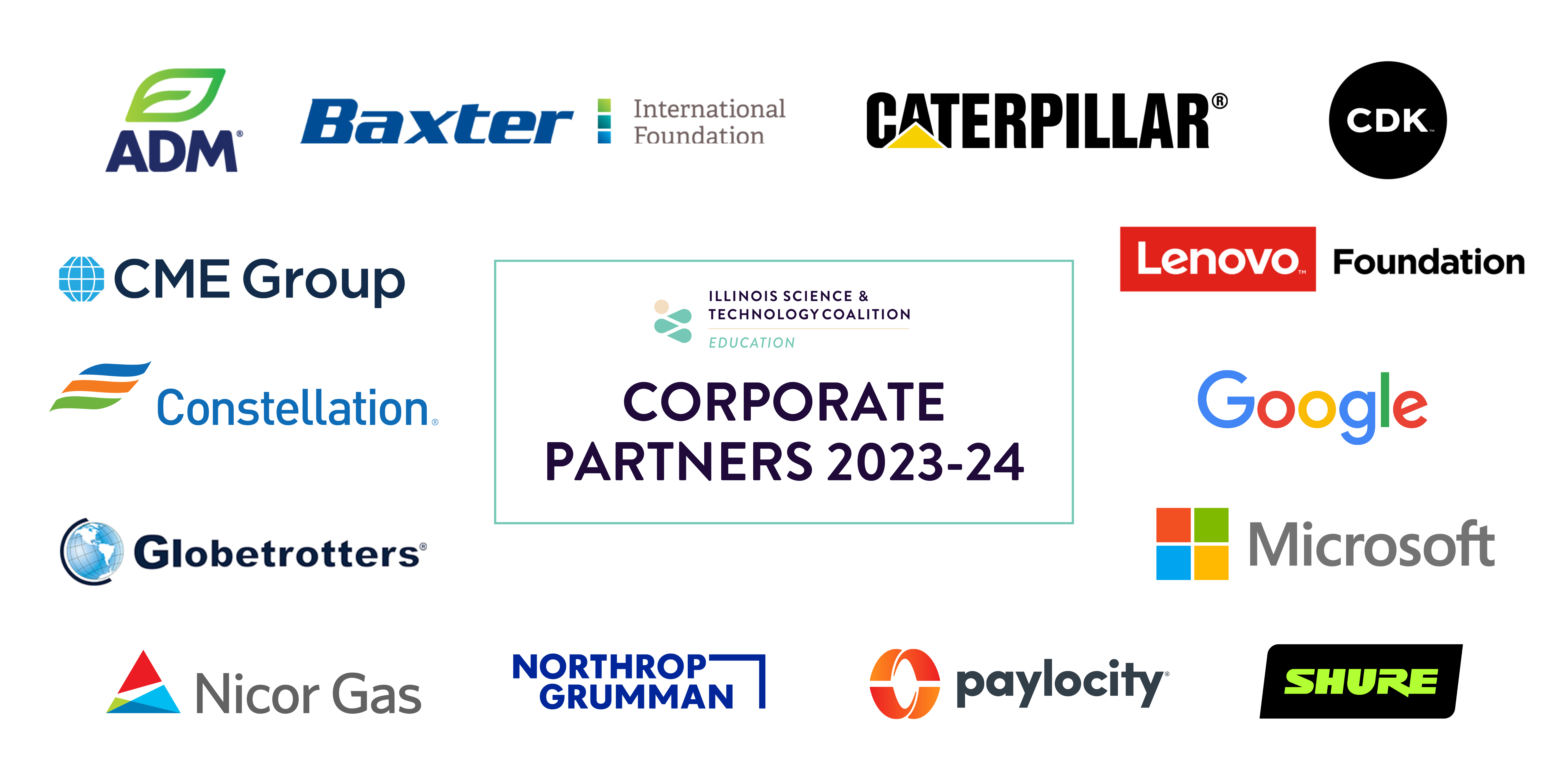

The STEM Challenge program entered its 10th year of partnering students with industry professionals in a collaborative effort to analyze, design, and test solutions to authentic issues facing STEM industries.
The STEM Challenge Showcase, hosted by Cresa, and supported by Baxter International Foundation, highlighted 20 student groups as they presented the final iterations of their proposed solutions. Each group had the opportunity to discuss not only the conclusion they arrived at, but also the process used throughout their innovation journeys.


The Mentor Matching Engine program continued to eliminate barriers to access of mentorship, connecting over 1400 students across Illinois with professionals from a host of STEM industries around the country. Over the course of the academic year, students developed employability skills and self-esteem while conducting a research project under the guidance of their mentors.
The culminating 5th Annual Student Research Showcase, hosted at Portal Innovations, gave 30 students the opportunity to present their findings to a panel of esteemed judges from the Illinois STEM ecosystem. This SRS placed emphasis on the process of innovation rather than the final product, prioritizing confidence and giving students a safe space to gain professional presentation and networking skills. Each student participant received a $500 scholarship in thanks to the inspired generosity of our partner, Paylocity.

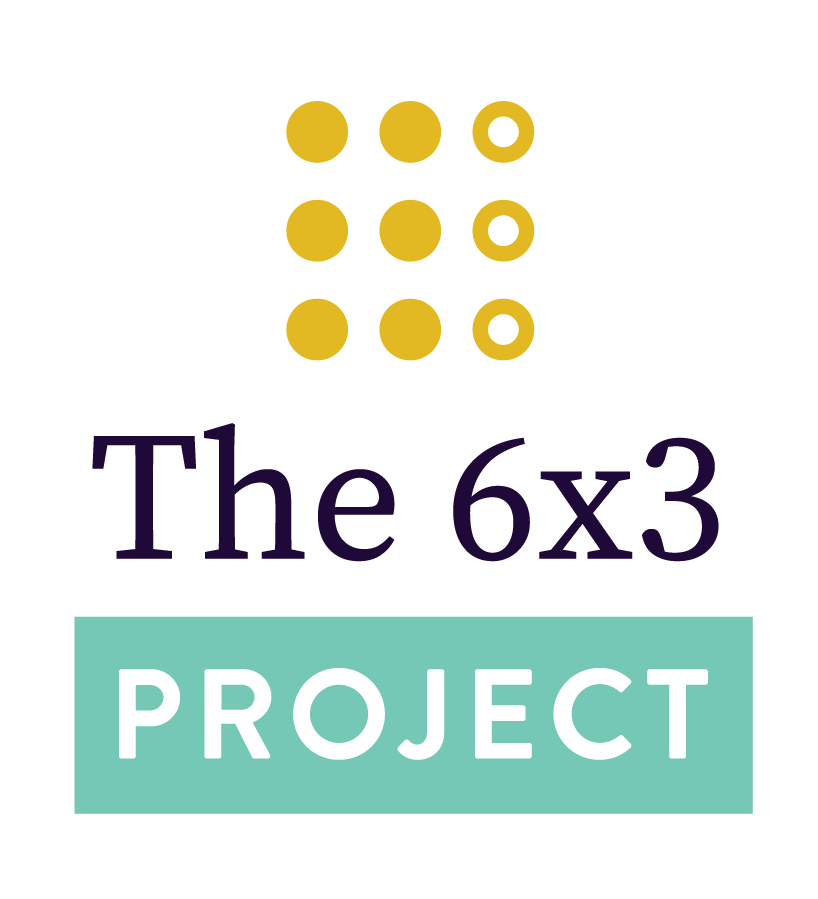
The 6 X 3 Project ® series condenses the highest-impact elements of flagship programs into a 6-week interdisciplinary exploration of innovation and problem solving. The series contained three pathways this past summer, which in total served 45 students across XX schools. Thanks to Paylocity’s generosity, each student left the program not only with strengthened confidence and professional skills, but a laptop and stipends honoring their participation.
The ACT Project: In partnership with Baxter International, students were challenged to take a human-centered design approach and create a means of improving health outcomes for patients experiencing adhesions. Students researched the issue alongside their Baxter International mentors, then brought their solution to fruition with coaching from Code Your Dreams, and finally created a marketing strategy with entrepreneurial guidance from The Gray Matter Experience.
The Bright Project: In collaboration with Horizon Therapeutics, students had the choice between developing an innovation that addressed deficits in either clinical trials, healthcare education, or social disparities. They received background information and research feedback from their Horizon mentors, then under the instruction of Code Nation and the Gray Matter Experience, developed a prototype and pitch/marketing strategy which they presented in the 6 X 3 Project Series Showcase.
Future Leaders: The inaugural Future Leaders program was also the first to welcome a middle school cohort to ISTC Education. For six weeks, these young minds worked alongside CME Group professionals to learn about different industries, career paths, and the intersection of STEM with the financial sector. Their final project was to design and pitch their own futures exchange.
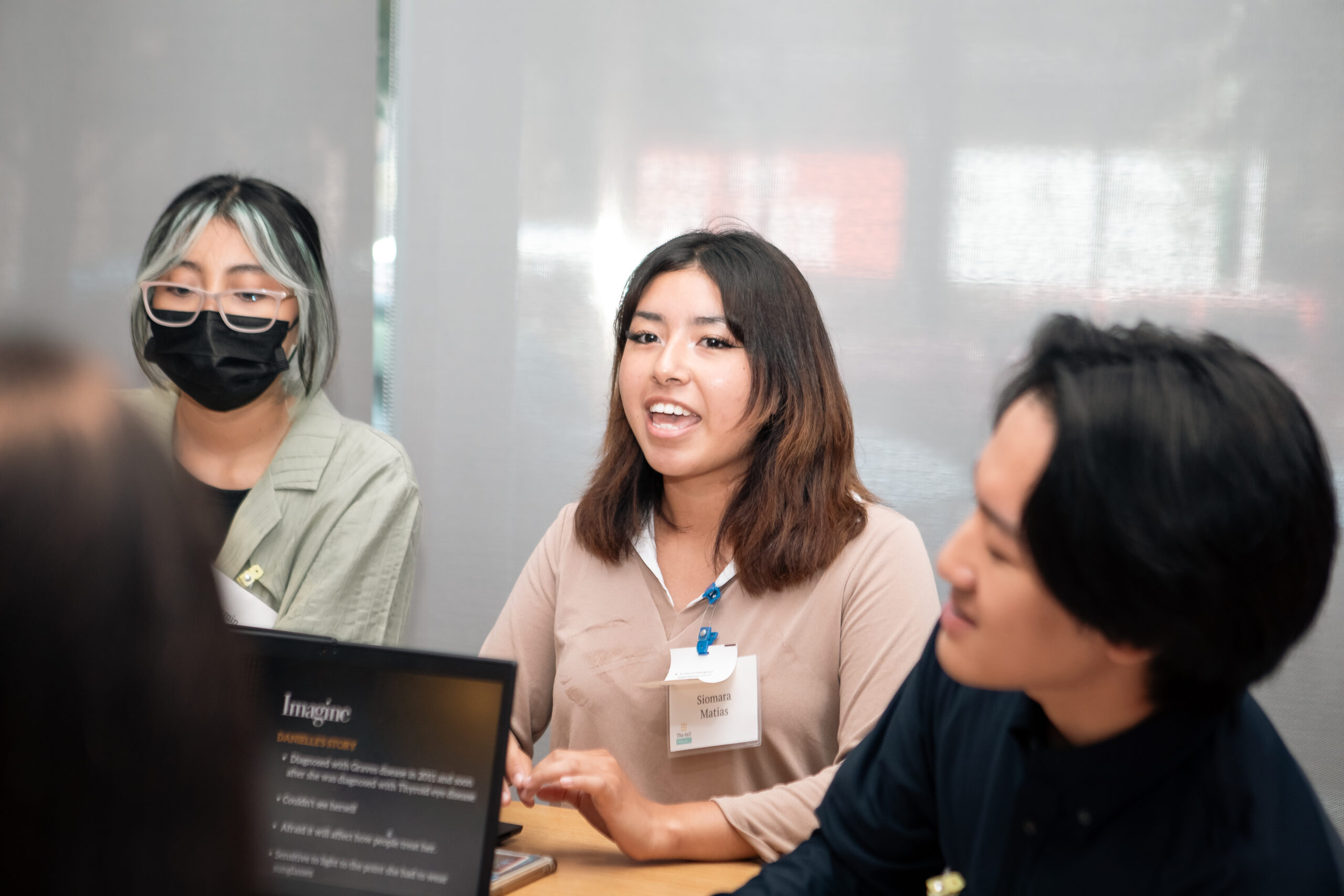
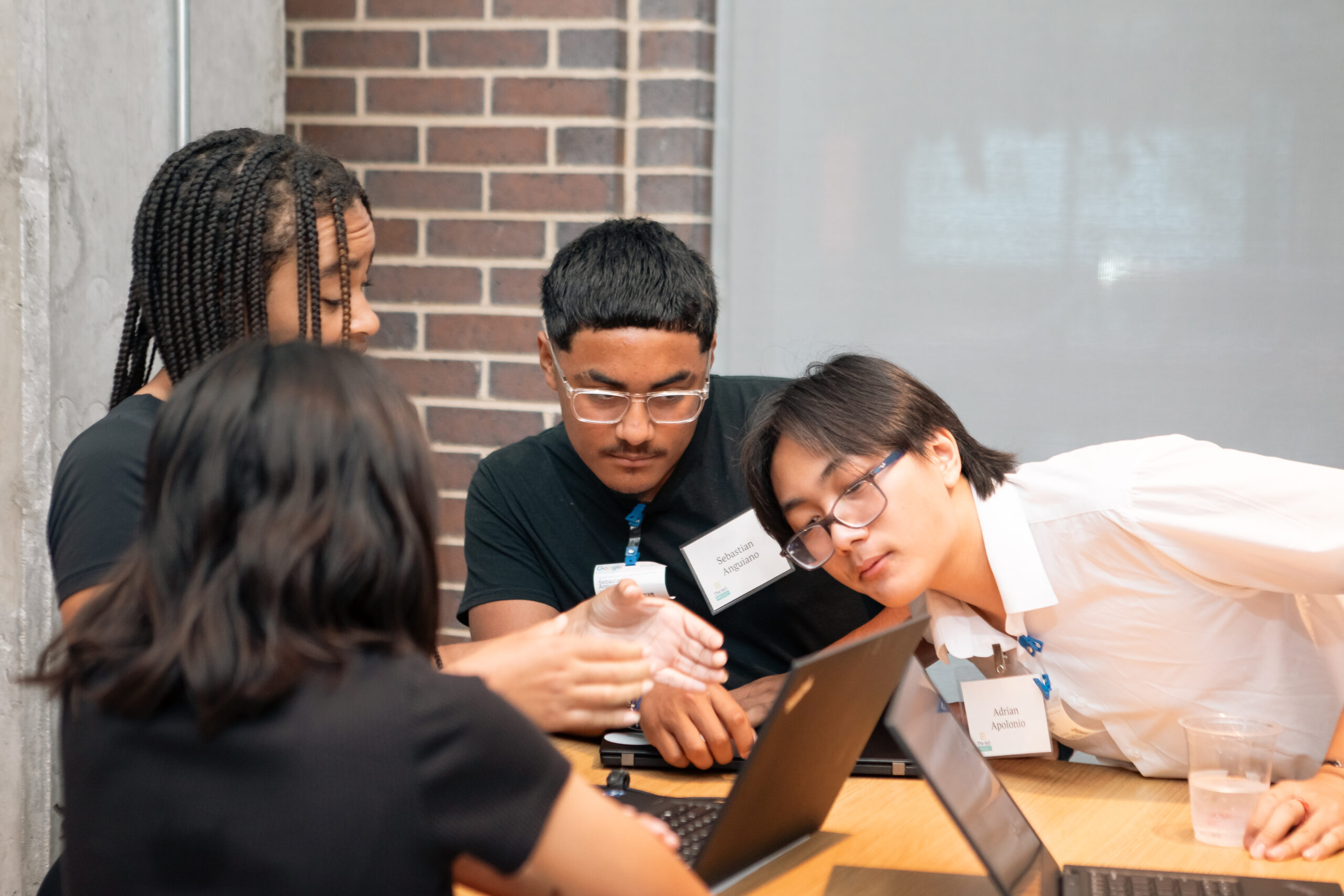
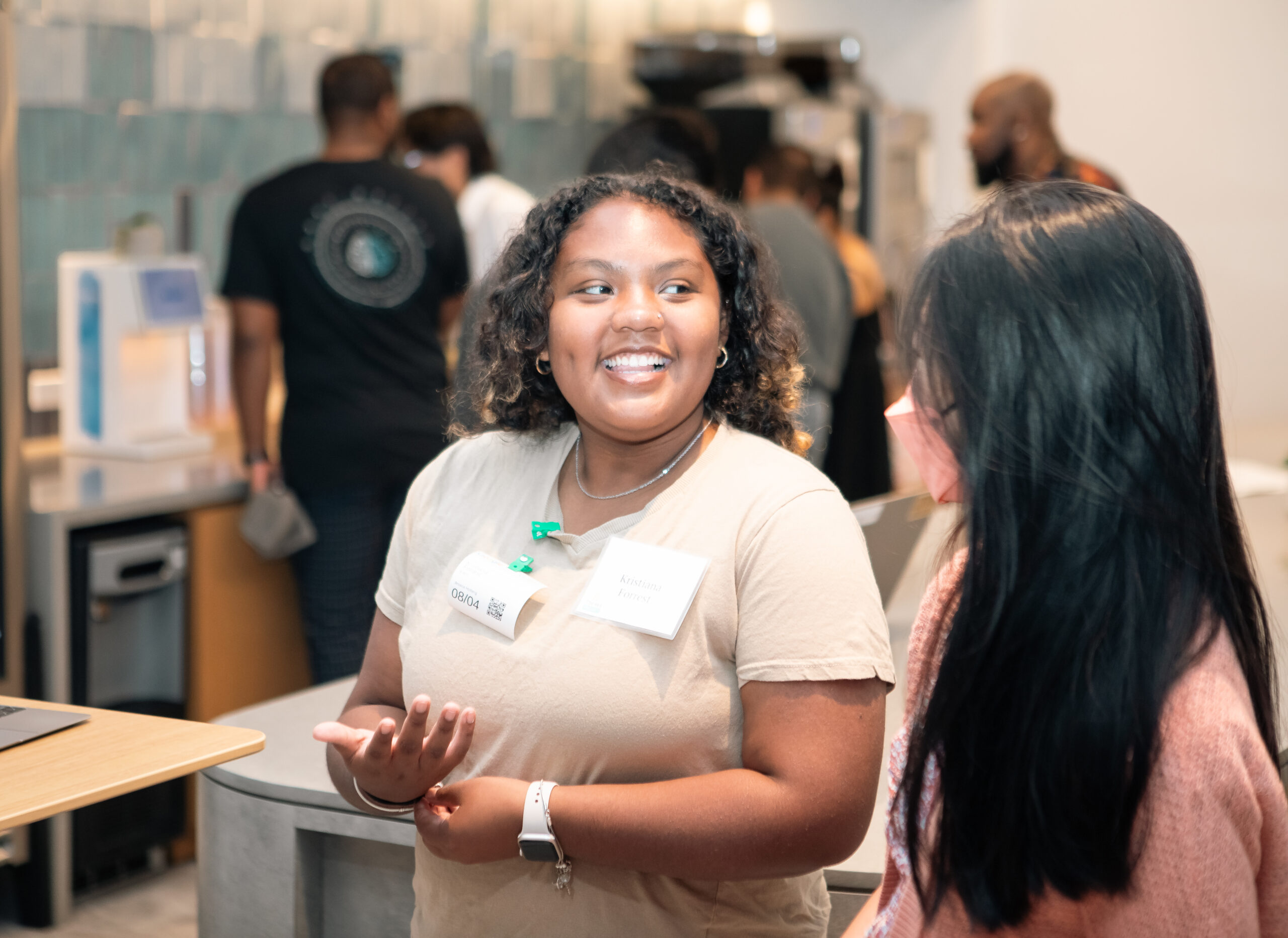

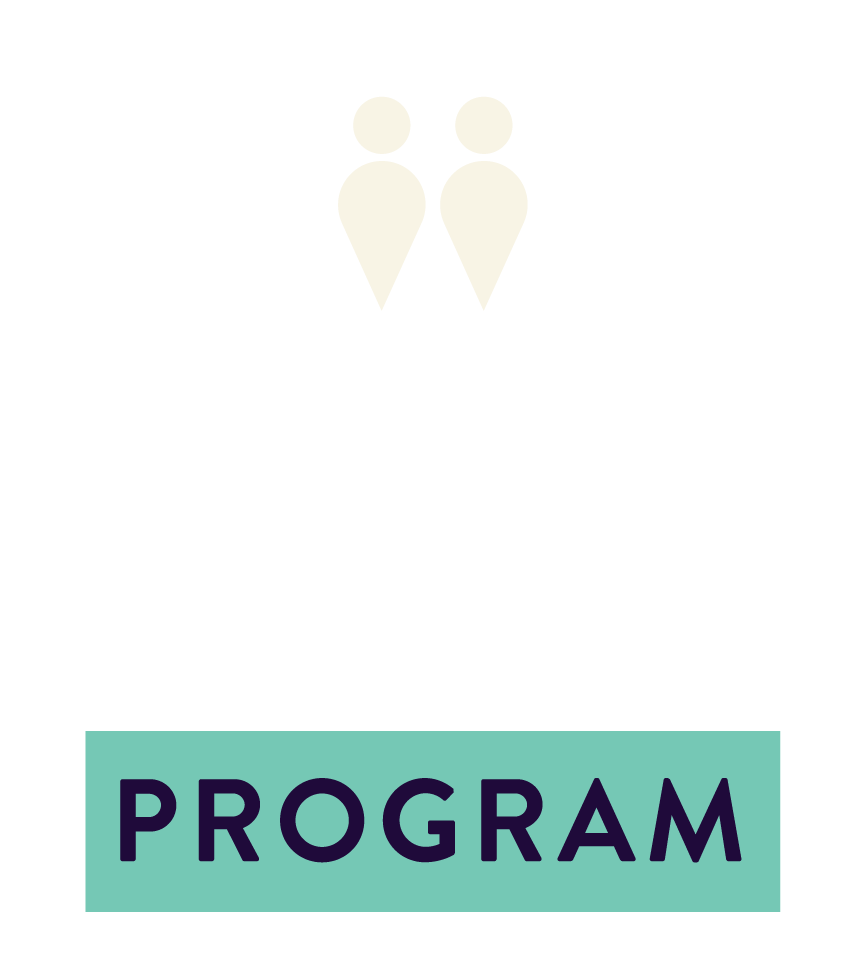
This externship program gives teachers the opportunity to bring a bit of the real world back to their classrooms. This year, teachers from 12 different schools across Illinois were partnered with employee mentors from Google and CDK Global, tripling the numbers of both teacher and mentor participants from last year. Through this connection to a local corporation, teachers were able to form relationships with professionals in the field, better understand the skills that students need in order to be successful, and gain a new career awareness for student guidance.
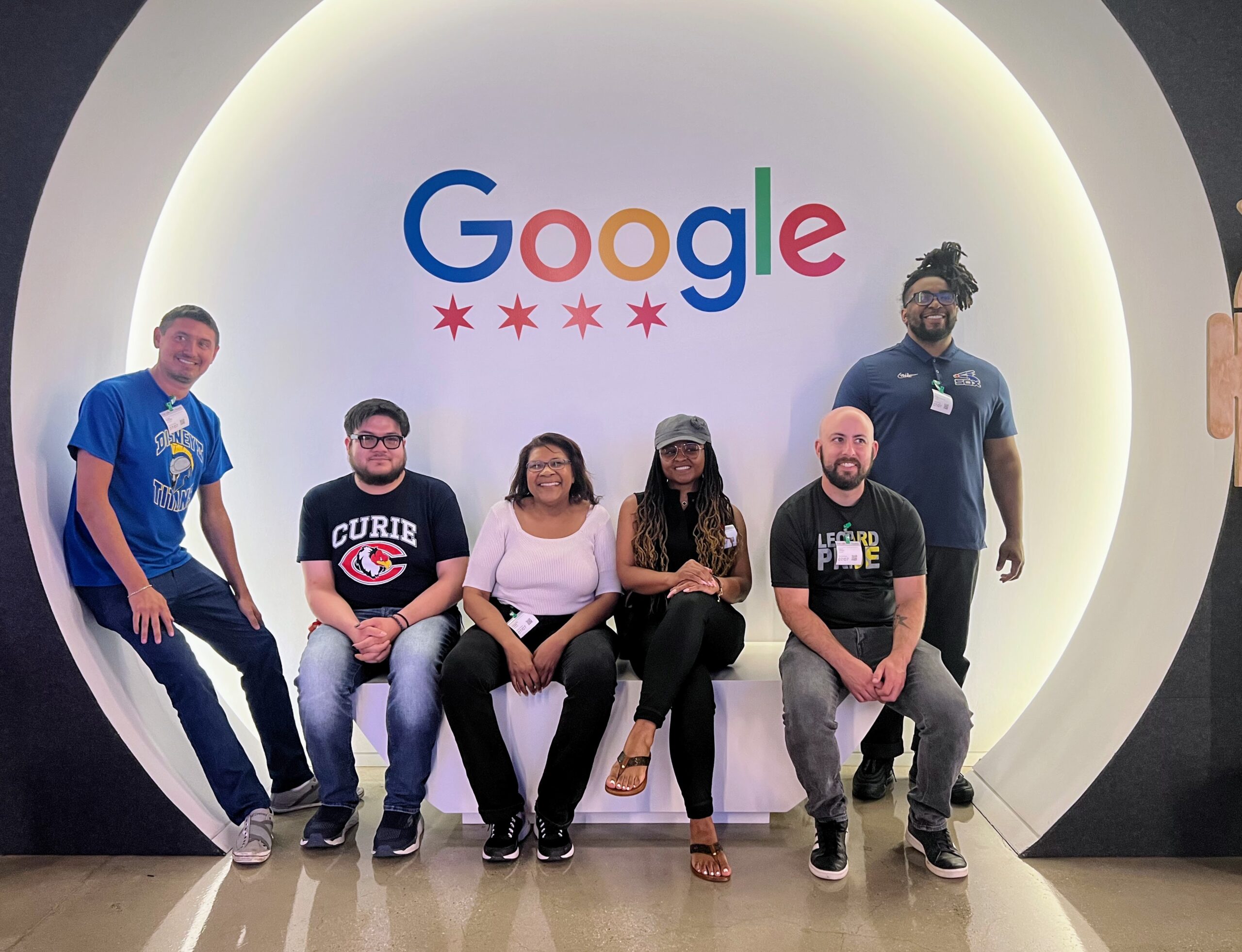
“I have done a lot of PD, because that’s what being a teacher is, and this is single handedly the most valuable experience I have ever had. It’s a combination of actual practicality in a situation, and open ended flexibility and creativity, for learning.”
2023 Teacher Participant
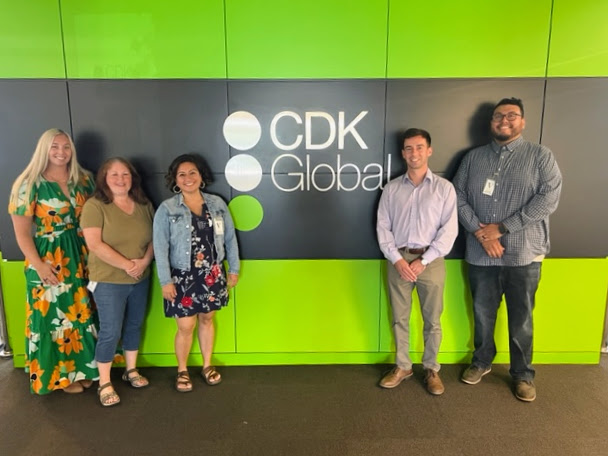
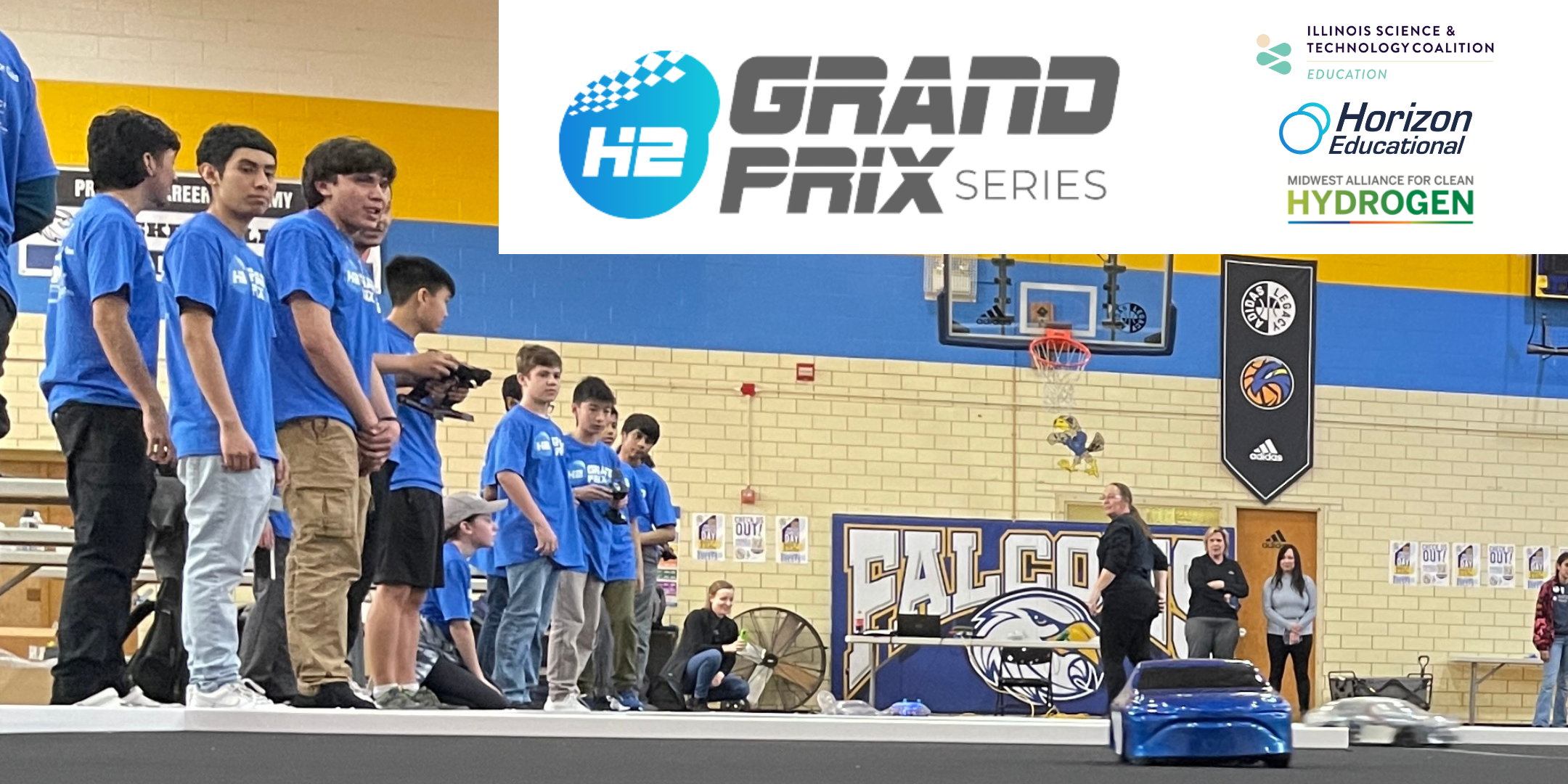
ISTC was proud to partner with Horizon Educational and the MachH2 Hub partners in launching the inaugural H2GP race series in the Midwest. This unique collaboration between company and community resources provides the perfect opportunity to engage students in STEM experiences and opportunities that will feed their confidence to enter the next generation of clean energy careers.
Through partnerships with the Illinois Science and Technology Coalition (ISTC) and Midwest Alliance for Clean Hydrogen (MachH2), 5 schools in Illinois, Michigan and Missouri will take part in the inaugural H2 Grand Prix Pro (H2GP) Midwest. The H2GP initiative is a global school-based science and engineering program run by Horizon Educational, providing hands-on experience designing, engineering and racing radio-controlled fuel cell electric vehicles powered by hydrogen. Students taking part gain employable skills in science and technology while also developing competence in critical thinking, creativity and teamwork.

This year, ISTC Education hosted its first series of in-person fundraising events. With support from our community and attendees, we have raised over $30,000. For over a decade, ISTC Education has been at the forefront of providing high-touch, high-dosage, and high-support experiences for students, educators, and mentors. We are genuinely excited about the educational impact that lies ahead thanks to the help of our generous donors, who are instrumental in bringing our collective vision to reality.
Cocktails for a Cause – This evening of cocktails, appetizers, networking, and educational impact kicked off our 2023 fundraising efforts by welcoming stakeholders to the Metropolitan Club in honor of the ISTC Education 10 year impact release.
Pickle for a Purpose – This fundraiser combined a social event and competitive pickleball tournament. It was hosted by The School House and sponsored by Microsoft and USG. With the help of sponsors and 49 attendees, Pickle for a Purpose raised enough to support 76 students across the state.
Innovators Unite Happy Hour – This Happy Hour honoring Giving Tuesday was organized in its entirety by the ISTC Education Associate Board and graciously hosted by My Buddy’s. Over casual drinks, trivia, and raffles, our community expanded, bonding across industry sectors and wrapping up the giving season.
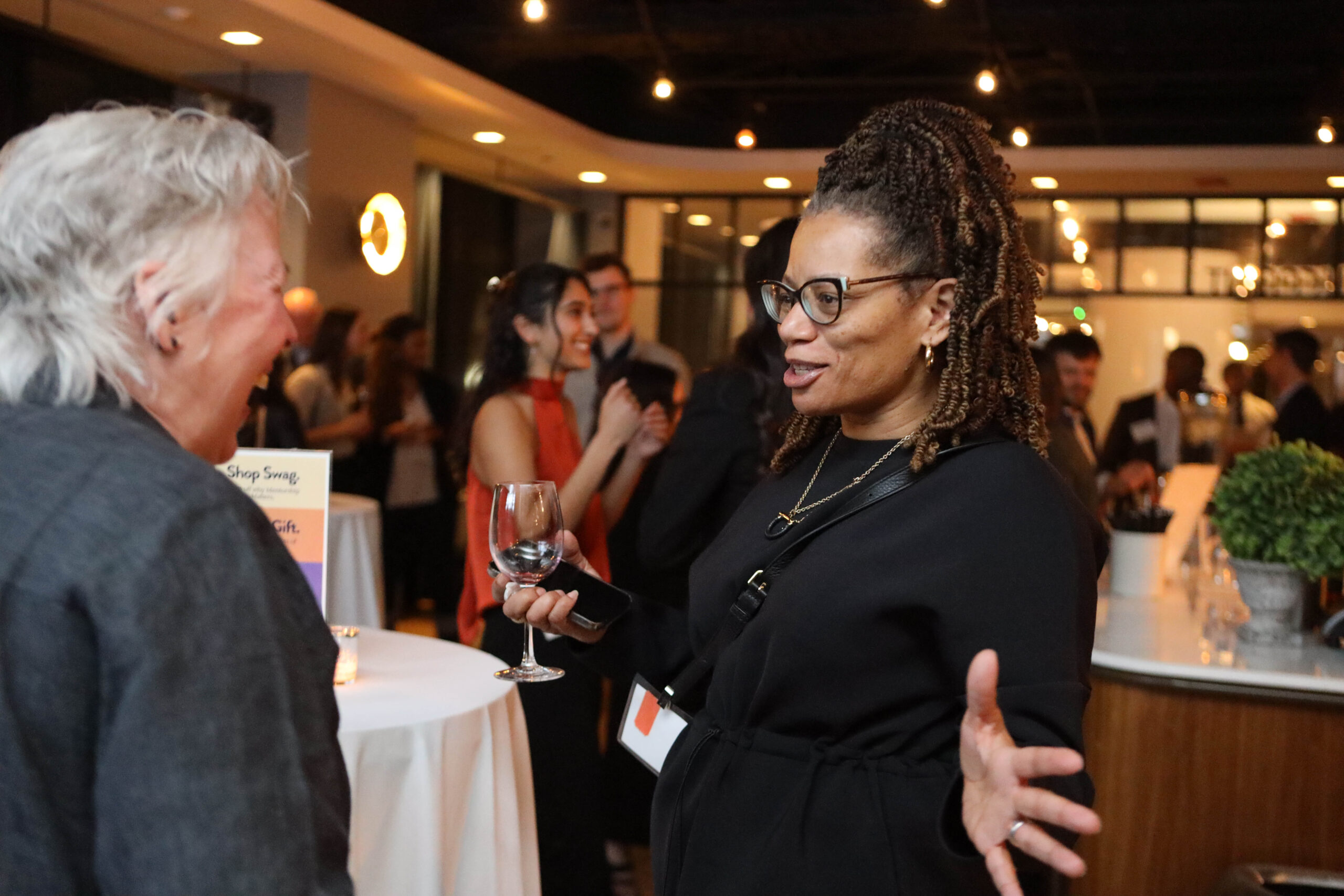
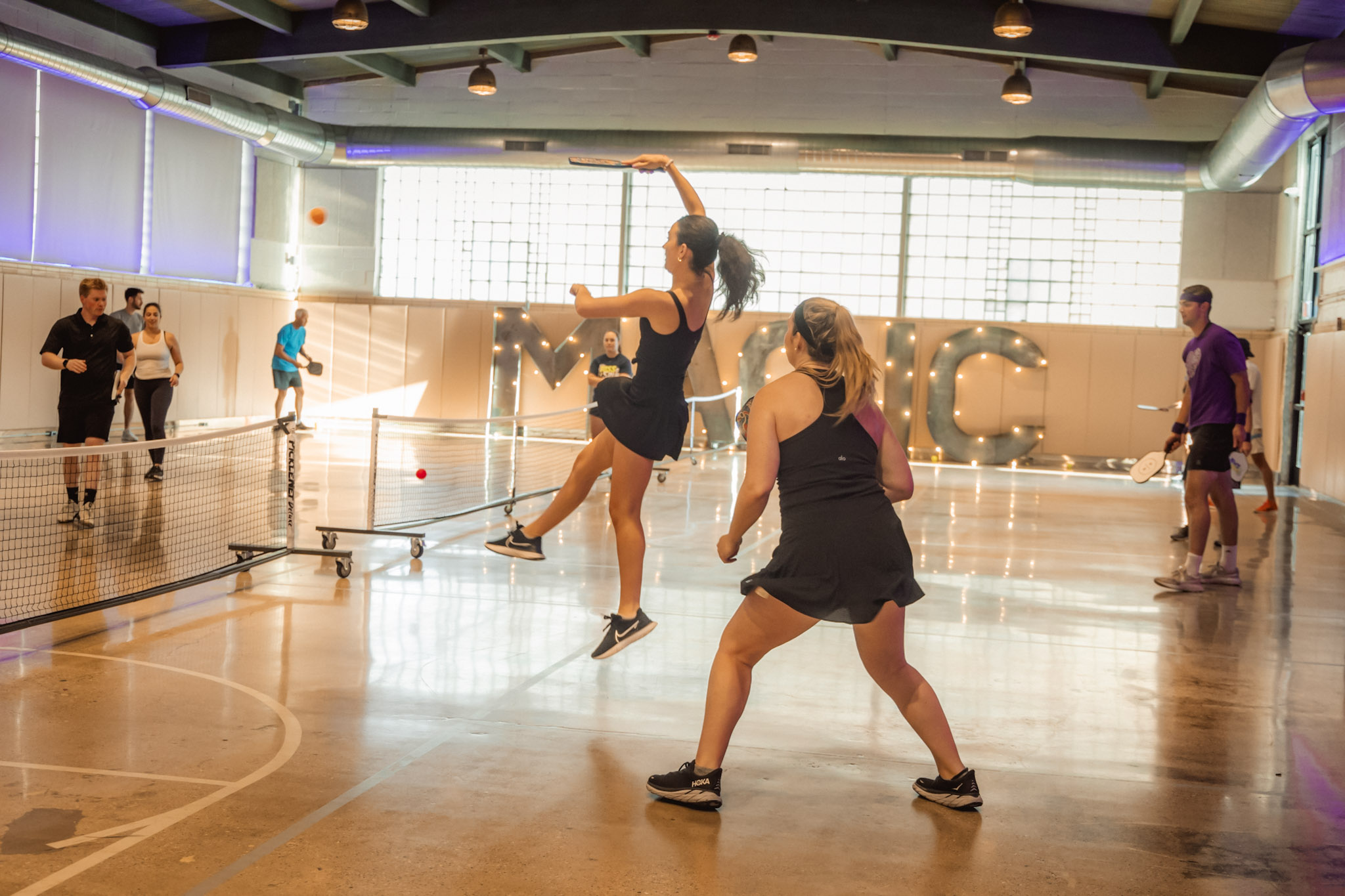
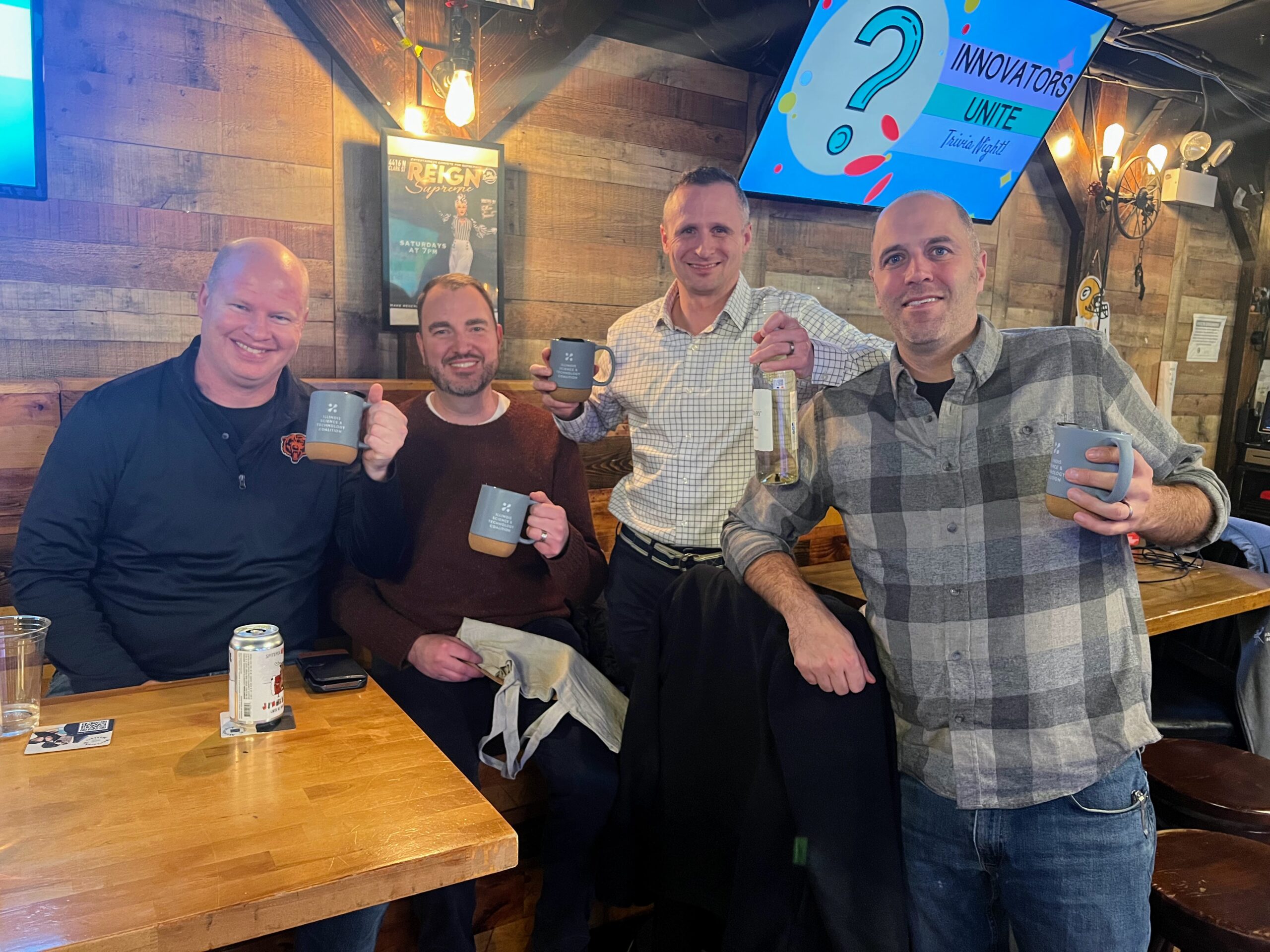
Thank you for choosing to be a part of ISTC Education this year. Together, we are shaping a brighter future for STEM education and creating lasting impacts on the lives of the students we serve.
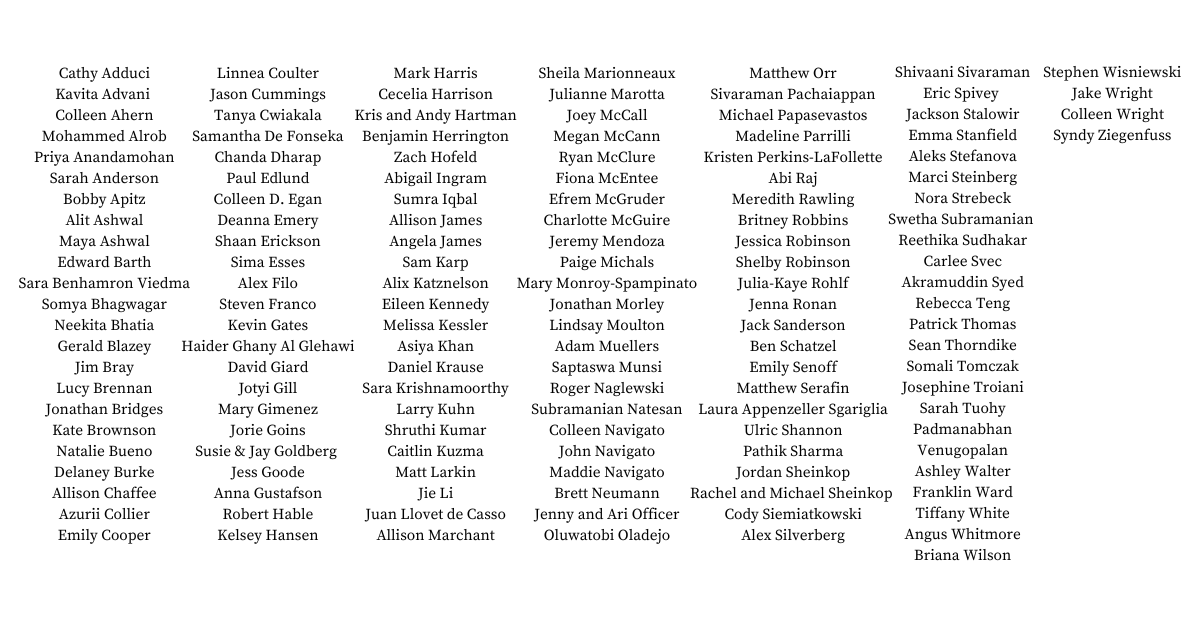
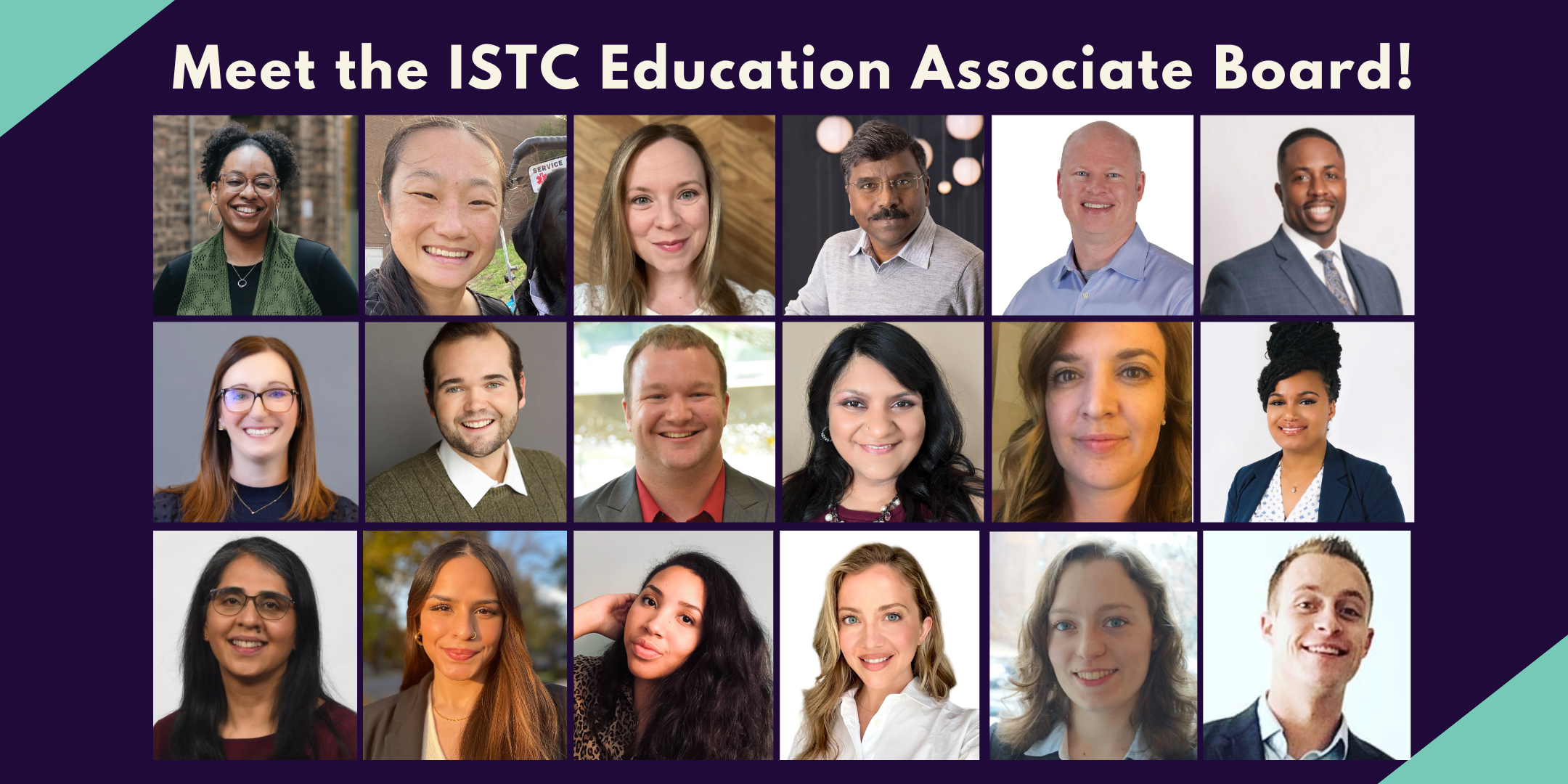
ISTC Education welcomed the very first cohort of young professionals in the creation of an Associate Board! The Associate Board operates to help cultivate a pipeline of future leaders and expand ISTC’s outreach to new audiences. This is an opportunity for professionals to make a deeper impact on the education and mentorship landscape in Illinois.
Thank you to our inaugural board
Joey McCall, LawLynX
Sheela Vemu, Waubansee Community College
Saloni Shah, Paylocity
Sumra Iqbal, United
Jonathan Morely, CME
Jessica Robinson, Bellwether Diversity
Kate Brownson, Baxter Center for Science Education
Deanna Emery, Aon
Ben Schatzel, Stannum Core Solutions
Yujia Ding, Northwestern- Student
Melissa Kessler, ADM
Jenny Officer, Studio Stylist
Patrick Thomas, Milwaukee Tool
Emily Cooper, Chicagoland Chamber of Commerce
Paige Michals, Microsoft
Shelby Robinson, Kin and Carta
Robbie Hable, Booz Allen Hamilton
Sivaraman Pachaiappan, AbbVie
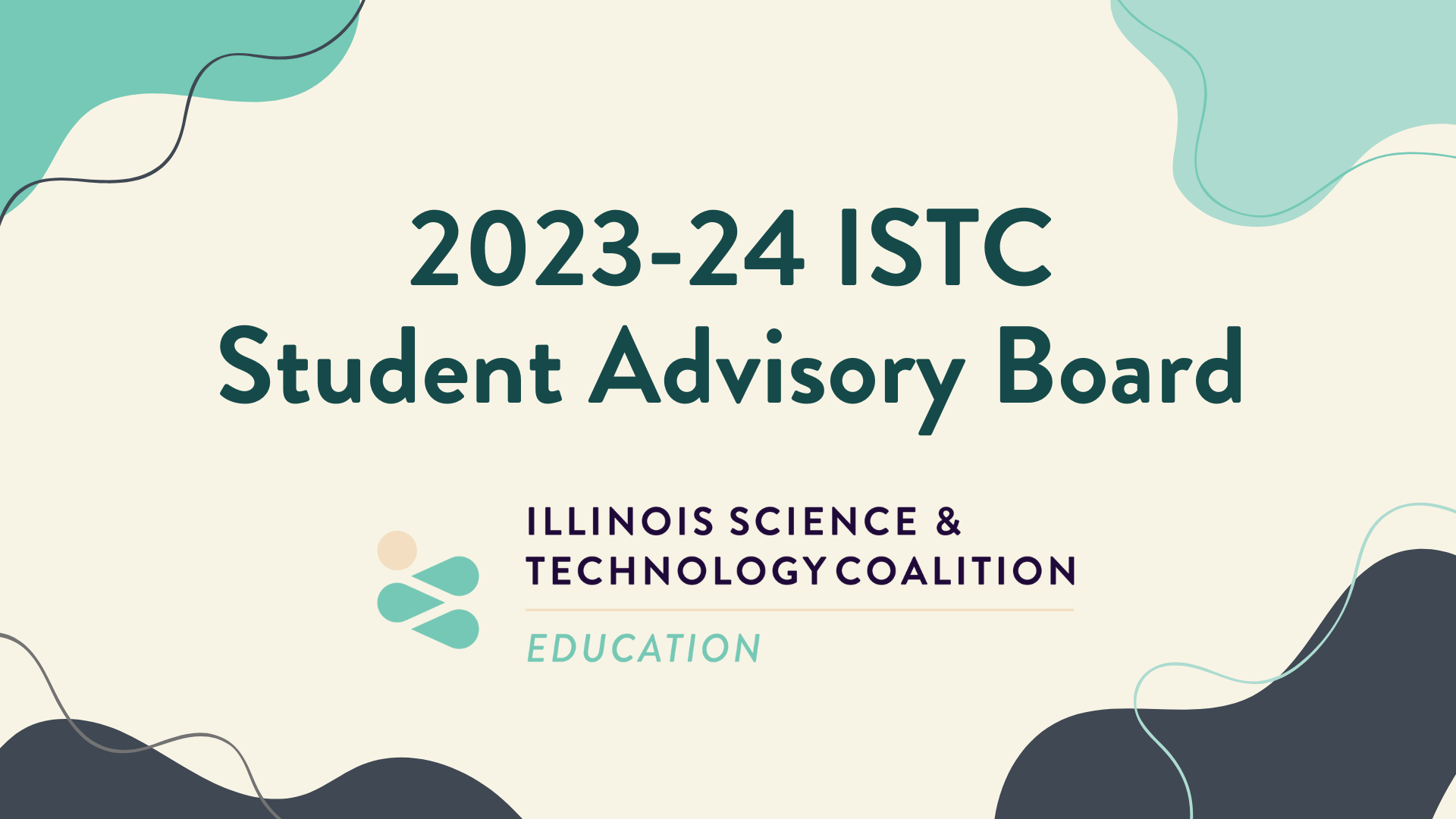
The SAB is an opportunity for ISTC Education to hear from the students we serve while helping them develop valuable leadership skills. The 2022-23 board was composed of 19 students from 13 different Illinois schools. They formed four committees—event planning, student experience, fundraising/donor engagement, and marketing/PR—and met each month. Over the course of the academic year, students worked on committee projects and contributed invaluable insights and strategies to improve ISTC programming from all angles, focusing on incorporating student voice. These projects included adding student perspectives into ISTC’s annual mentor training, creating new ideas for donor and community engagement, and presenting opening remarks at our Student Research Showcase and STEM Challenge Showcase. In the 2023-24 school year, the Student Advisory Board will continue to introduce new ideas and develop leadership skills, co-led by our first Collegiate Advisor–a Student Advisory Board alumna.

Illinois Innovation Vouchers
As a connector, convener and champion for research and technology based economic development, the Illinois Science and Technology Coalition is proud to announce that we have been chosen to lead the state’s newest economic development initiative: The Illinois Innovation Voucher Program, in partnership with Illinois Department of Commerce and Economic Opportunity. See the press release HERE.


